Source: minfin.com.ua.
Will the prices in the primary housing market fall? What risks do rising prices of construction materials and the lack of effective demand from apartment buyers carry for real estate developers? Whether will there be slumping prices in the secondary housing market? The Construction Sector Head at the Better Regulation Delivery Office (BRDO) Olena Shulyak said about these and other issues in an exclusive interview to with the Minfin.
In January-September 2017, 6889.3 thousand square meters of total housing area, 58.6% of which are multi-apartment buildings, were commissioned in Ukraine. During these 3 quarters, 1093.4 thousand square meters of total housing area were commissioned in Kyiv due to the construction of new residential buildings and the reconstruction of the existing housing stock. This is 56.3% more than was commissioned in January-September 2016.
Now the news that there is a “crisis bubble” in the market is everywhere. In my opinion, there is little reason to talk about such a phenomenon. The crisis supply glut in the real estate market occurs in most cases when large amounts of unsecured credit resources come into construction. Today, there is a different situation in Ukraine. For the period from 2013, a percentage of funds invested by citizens in real estate has increased more than threefold – from 0.42% to 1.49%. In terms of “ready” cash – from 6.6 billion hryvnas to 29.9 billion hryvnas. In dollar terms, the increase is not so significant – from $0.8 to $1.2 billion, but the trend is the same.
Problems related to the lack of inexpensive credit resources have reformatted the market. Now it has more own “ready” cash of citizens. Thus, there are not enough reasons to say that the housing “bubble” will burst in the near future. More likely – the market has reached the price setting line limited by the level of income.
As for prices for primary housing, it can be noted that they almost reached a threshold of profitability. The growth rates of construction works and investments in the construction sector led to the increased demand for construction materials. First of all, for groups of basic materials: cement, concrete, metal constructions used in residential and infrastructure construction. In addition, due to the state policy, consumption of energy efficient materials and materials for thermo-modernization of buildings is increasing. Currency fluctuations also affect the price of construction materials.
It is absolutely logical that all these factors affect the prices of finished construction projects. However, sales of residential real estate and most segments of commercial facilities depend first and foremost on the level of incomes of the population and small and medium enterprises. But it remains extremely low. According to experts, only in Kyiv, about 60 thousand apartments in new buildings are still unsold and have little chance of being sold in the near future.
The low purchasing power factor does not allow to expect a significant increase in prices for primary residential property, and, in turn, the level of construction management costs does not help to reduce them.
The secondary real estate market also depends on many factors. You should not expect that the prices for “secondary” homes in prestigious areas with well-developed infrastructure decrease in 2018. However, there can be fluctuations in prices for so-called middle class and economy class housing, that is, the most demanded in Ukraine at the moment. In this case, several factors will influence the final cost. For example, the demand growth will increase them, and the increase in payments for the maintenance of such real estate (the growth of utility costs and payments for energy), on the contrary, will push them down.
The average age of residential real estate in Ukraine is 42 years. This factor demonstrates the low energy efficiency of such buildings and high costs of their maintenance.
In such a way, high demand is somewhat offset by new customer requests.
So, we can sum up that fluctuations in prices in the “secondary” market are possible, but within 5% per annum.
In both cases, both in the primary and secondary markets, the investment attractiveness depends on the economic value added that risk-based investments will create. At this stage, the forecasting time-frame of future cash flows that real estate items can generate practically does not exceed the term of more than one year. Therefore, the attractiveness of the secondary market is largely determined by “low prices” of property items. In this context, “stressful” assets (for example, bankrupt property) are beyond any competition.
Property risks in the project constructions are more dependent on regulatory procedures than on construction technologies. The construction sector mostly affects the primary market. Now we have positive changes in the state regulatory policy regarding the construction process, and they will continue. This will clearly work well for the market.
On December 8, 2017, the pilot module for planning state supervision (control) IAS SSC (ias.brdo.com.ua) provided the opportunity to search for planned state supervision (control) measures not included in the Plan for the implementation of comprehensive state supervision (control) measures for 2018.
Currently, 22 approved annual plans of supervisory bodies containing 108,805 state supervision (control) measures from approved annual plan, 27,307 measures of which were included into the Plan for the implementation of comprehensive state supervision (control) measures for 2018, have been added to the system.
Business entities who want to know whether they are included into one of these plans can follow this link and use the search bar on the main page.
As a reminder, on October 25, 2017, the State Regulatory Service of Ukraine together with the Ministry of Economic Development and Trade of Ukraine and with the support of the Better Regulation Delivery Office (BRDO) launched the pilot module for planning state supervision (control) measures IAS SSC. 24 state supervision (control) bodies have already joined it.
A list of bodies that added approved plans of state supervision (control) measures for 2018 (for reference)
In fact, Ukraine still doesn’t have the market of charging stations that significantly restrains the development of the segment of environmentally friendly transport modes. The operation of electric cars requires to resolve a number of issues related to their maintenance and service, the product itself is not defined in the market, the status of charging units and electric charging stations is not regulated and so on. A separate set of problematic points is related to the development of infrastructure, in particular the conditions to connect to electricity networks.
Experts of the BRDO Energy sector conducted a detailed study of the regulation of energy efficiency and retail electricity markets. Based on its results, they developed the Concept for development of the market of electric charging stations.
In addition, the business case “Electric charging station” providing step-by-step instructions on starting this type of business in Ukraine was also created on the PRO Platform. This case offers a check-list to create the infrastructure of electric charging stations: what documents to collect, how long each procedure will take, where to apply for and so on.
As a result of consultations with business, public and expert representatives, additional barriers to the segment development that can not be eliminated at the level of secondary laws have been found out. The market of electric charging stations should be systematized and integrated with the electricity market.
“Electric cars reduce the dependence of the state on energy resources, contribute environmental safety and have a positive impact on the country’s economy as a whole. However, the development of this sector is impossible in Ukraine without creating the appropriate legislative framework for the market of electric charging stations,” the Energy Sector Head Oleksiy Orzhel said.
[gview file=”https://brdo.com.ua/wp-content/uploads/2017/12/KONTSEPTSIYA-ROZVYTKU-RYNKU-ELEKTROZARYADNYH-STANTSIJ-3.pdf”]
In accordance with the Concept for development of the market of electric charging stations developed by the BRDO Office,
Consumers obtain an opportunity:
ECS operators will receive:
Oblenergo organizations will receive:
Electricity suppliers will:
The Ukraine’s energy system will receive:
Learn more about the Concept here.
A press briefing devoted to the launch of a simplified registration procedure for medicines will take place in the Ukrainian Crisis Media Center on December 7 at 11:00. Drugs, which have been registered in an appropriate way with quality, safety and efficacy testing in countries with strict regulatory requirements (Switzerland, Japan, USA, Australia, Canada) and in the EU at the central level with the right to sell them across all EU member states, can be registered only in 17 days in Ukraine. Applicants will be able to submit a package of documents online.
Venue: Kyiv, 2, Khreshchatyk St. (Ukrainian Crisis Media Center).
The Ministry of Health and the State Expert Center, in cooperation with business associations, have been developing subordinate acts to the amendments to the Law of Ukraine “On Medicinal Products” adopted by Parliament for several months.
Recently, amendments to subordinate acts that improve the procedure of simplified registration of medicines have been published. Now the regulatory framework is finally established, and the procedure of simplified registration is ready to launch.
What does this mean for the Ukrainian pharmaceutical market, which opportunities will the business have and how will the simplified registration affect ordinary Ukrainians? These questions will be discussed during the press briefing. Invited speakers are:
Ulyana Suprun, Acting Minister of Health;
Tetyana Dumenko, Director of the State Expert Center of the Ministry of Health;
Andy Hunder, President of the American Chamber of Commerce in Ukraine (ACC);
Tomas Fiala, President of the European Business Association (EBA);
Oleksiy Honcharuk, Head of the Better Regulation Delivery Office (BRDO).
Entrance by press cards.
Details at: (044) 253 69 75, [email protected].
Ukraine is among the 20 countries in the world that have the largest land bank for organic production. The area of certified organic land is more than 410 thousand hectares, which is only 1% of the total amount of agricultural lands. The Ukrainian market of organic products has enormous potential, but its development is hindered by the lack of effective regulation in the sector. The relevant Law has not been put into practice yet, so no domestic producer is certified in accordance with the Ukrainian legislation, and organic products often become counterfeit items.
Government and business representatives as well as experts discussed the ways of resolving the problems in the market during the roundtable “Organic Production: New Opportunities for SMEs and Sustainable Development of Rural Areas” held by the Better Regulation Delivery Office (BRDO) with the support of the EU4Business\FORBIZ project as part of the Public Dialogue #PRODialogue in Lutsk on November 30.
A positive message of the government is the adoption of the Concept of development of farm enterprises of 13/09/2017, which determines the priority of the organic production development and introduces local targeted support programs. In particular, in Volyn, Zhytomyr and Chernihiv regions. The purpose is to stimulate the transition of farms to organic production.
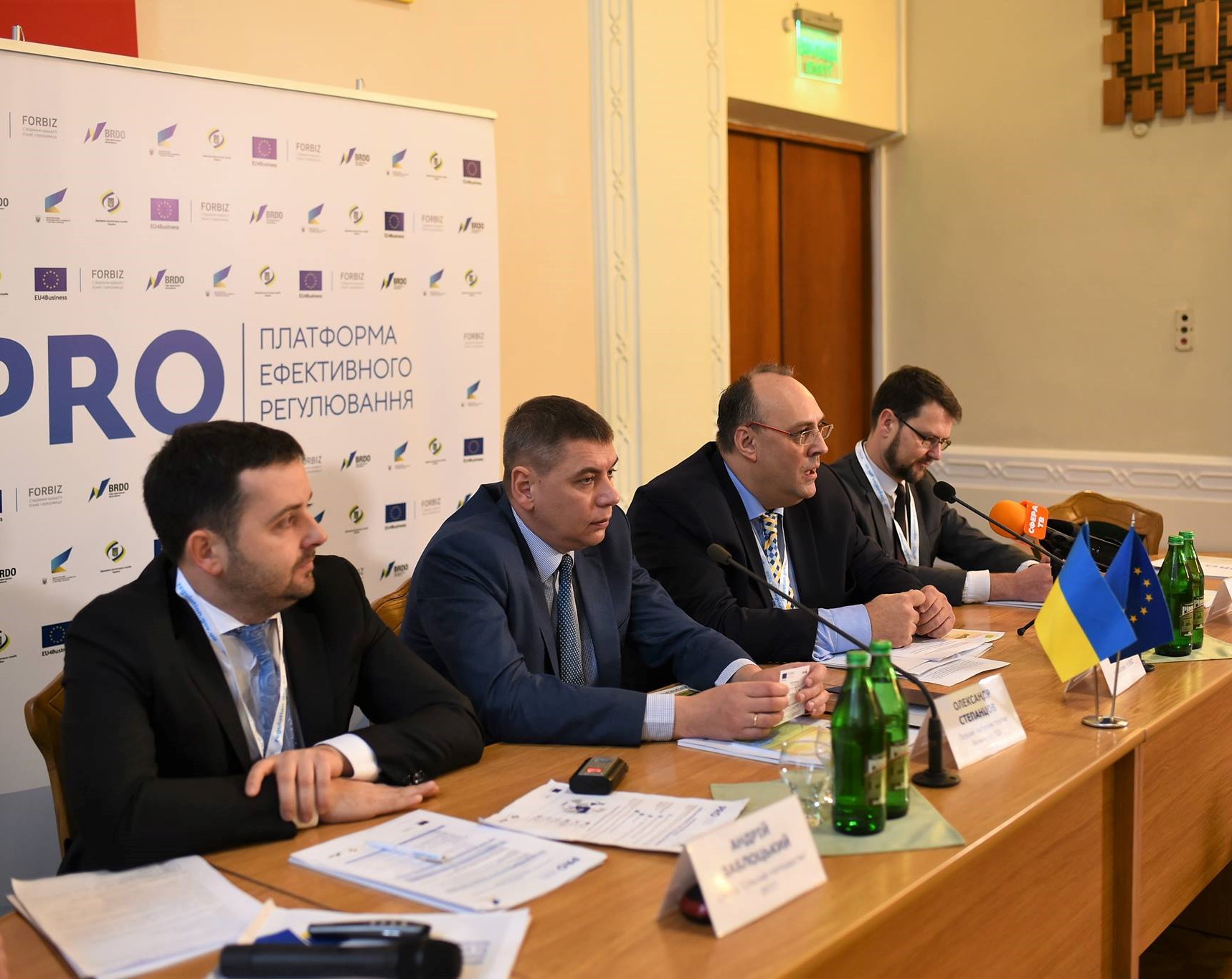
At the opening of the event, Oleksandr Stepantsov, the First Deputy Head of the Volyn Regional State Administration, emphasized, “Agriculture is one of the priority sectors for the Volyn region. Especially organic products, which have high added value, create new jobs and provide a better quality of life for our citizens. There is a support program for organic producers, under which entrepreneurs have 50% compensation for expenses related to certification for organic production, implemented in the Volyn region. Today, 17 local market operators have been already certified according to the international standard and are exporting to Europe.”
There is a positive dynamics in the market. The number of organic market operators increased by 65% – up to 400 entities compared to 2011. 210 of them produce the products. At the same time, the number of producers in Ukraine is only 0.61% of their number in Spain (more than 34 thousand) and 0.84% – in Germany (more than 25 thousand).
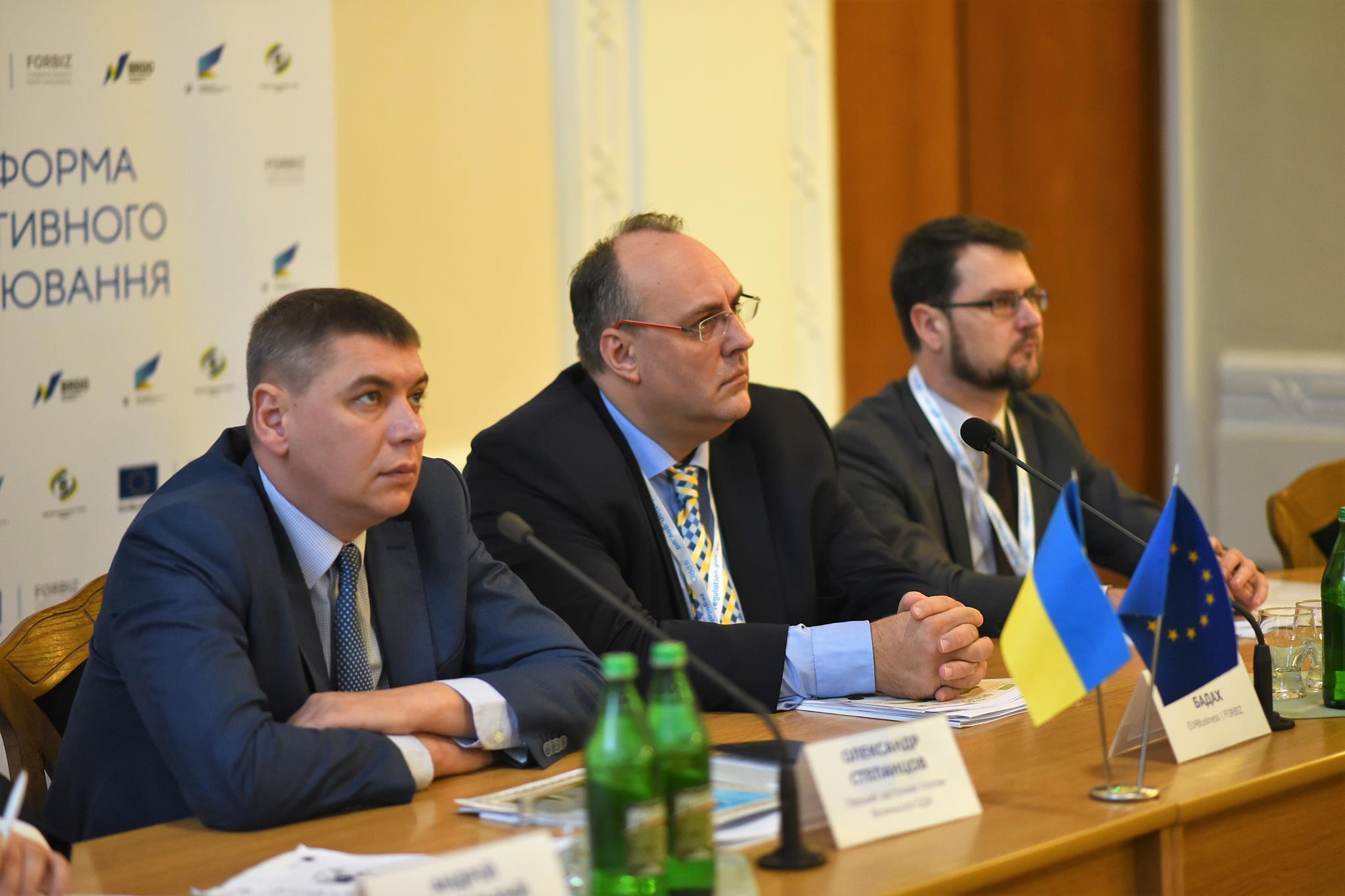
The Better Regulation Delivery Office (BRDO) analyzed the regulation in the sector and presented its results in the Green Paper. The Cabinet of Ministers adopted only 1/3 of acts envisaged by the Law of Ukraine “On production and circulation of organic agricultural products and raw materials”. Regulatory gaps in the organic market lead to numerous violations and hinder the development of organic production.
“The situation is unique, because the market is developing under conditions of absolutely inefficient current legislation in organic production. The relevant Law has not been put into practice and as a result – no Ukrainian producer is certified under Ukrainian law. 100% of the organic market are certified according to foreign standards, and so the State Service of Ukraine on Food Safety and Consumer Protection can’t control the conformity of products. Consequently, products sold in our stores often are counterfeit items,” the Head of the BRDO Agriculture sector Andriy Zablotsky said, when presenting the results of the analysis.
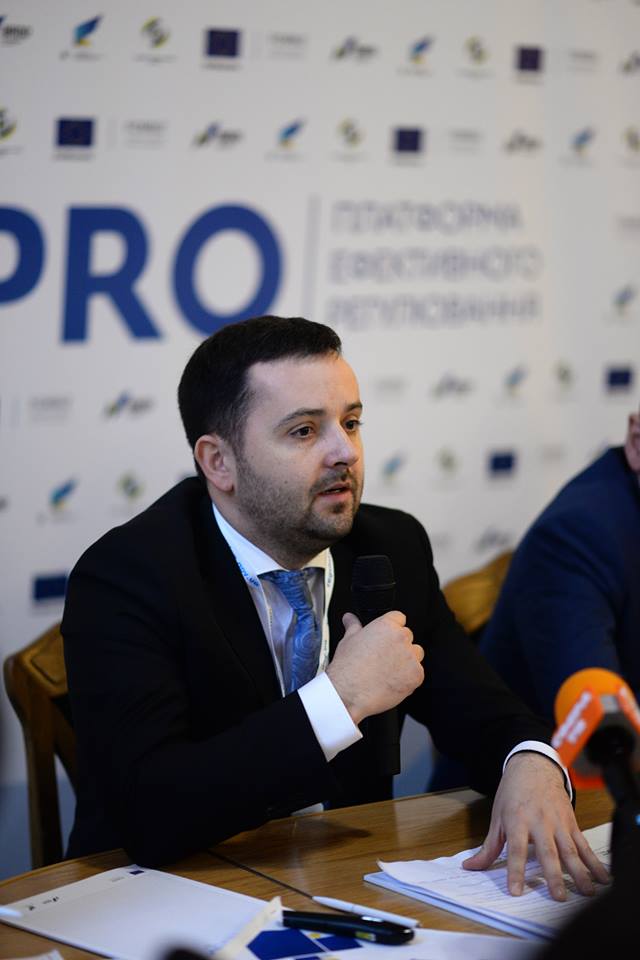
Moreover, the organic agriculture segment is not included in the state system of statistics. Gaps in the legislation make it impossible to create the body responsible for the conformity assessment (certification) in organic production. As a result, there is no register of organic producers.
At the same time, the demand for Ukrainian organic products is growing in foreign markets. Exports of our products reached 73 million euros in 2016 and demonstrated an increase of 20 million euros per year. Germany, Poland, Britain, Austria, Italy and Switzerland are the major importers of organic materials from Ukraine. 47% of exports are grain, and other important export articles include seeds, oilseeds, dairy products and honey.
Today, certification for exporters of organic products from Ukraine is a rather complicated procedure, which is carried out according to an equivalent standard, and a share of organic products in the total agricultural export is only 0.5%. If Ukraine achieves recognizing the equivalence of international standards in organic production and sales, this will significantly simplify the business environment and increase production and export opportunities of Ukraine.
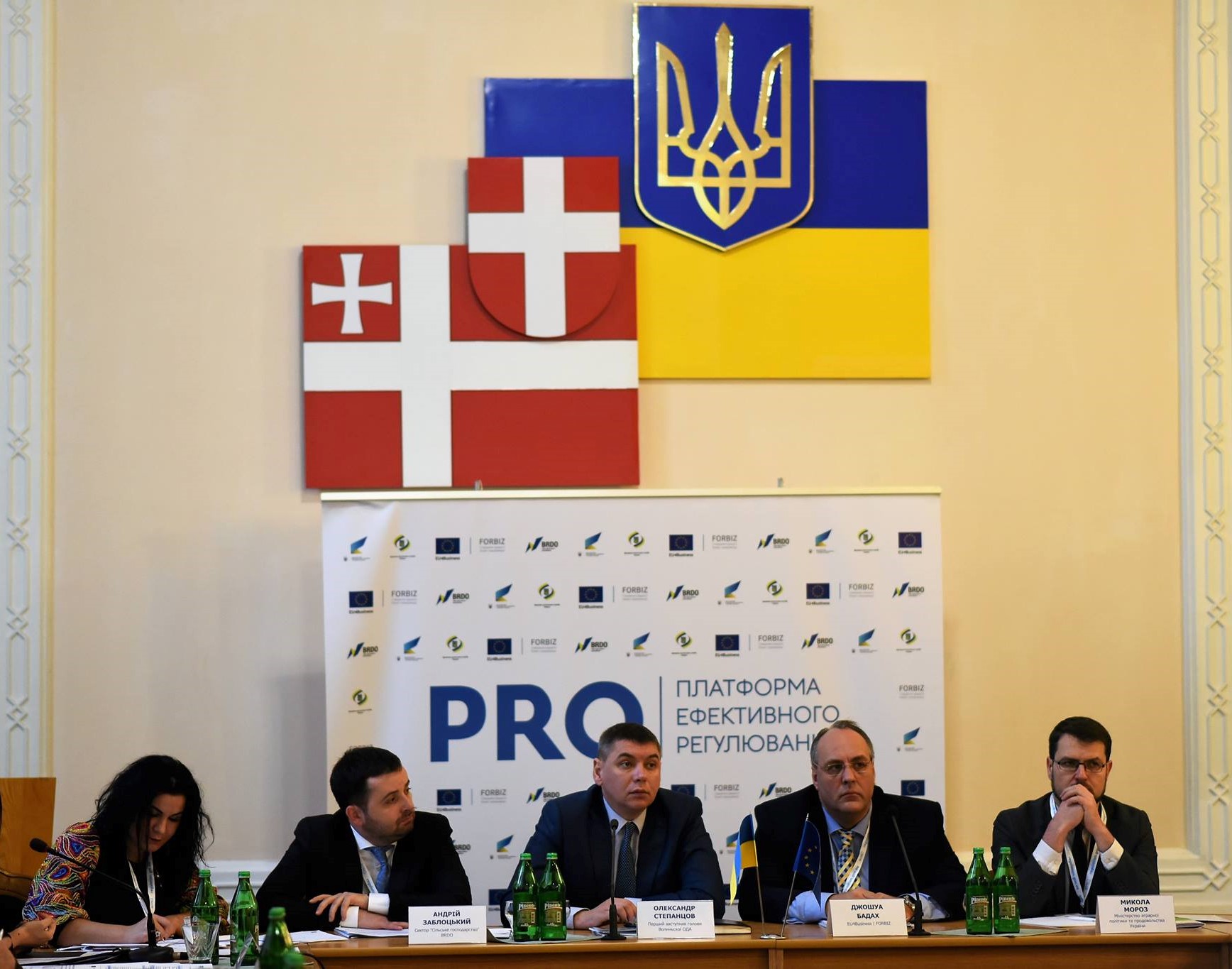
Joshua Badakh, the key expert of EU4Business/FORBIZ projects, also emphasized this fact: “Given its natural environment, Ukraine has a huge potential in the market of organic products, which are very popular in Europe. It is necessary to create a clear regulatory environment and harmonize Ukrainian laws with European standards to realize existing opportunities. This will attract additional investments, have a positive impact on the employment of population and the development of rural areas. It is extremely important to create more favorable conditions to do business and involve entrepreneurs into organic production.”
In addition, the business case “Farm enterprises (Organic Plant Production)” developed and published among other 23 cases on the Platform for Effective Regulation PRO www.regulation.gov.ua was presented during the event.
The event was also attended by Mykola Moroz, the Director of Food Department of the Ministry of Agrarian Policy and Food of Ukraine, Yuriy Horbenko, the Director of Agricultural Development Department of the Volyn Regional State Administration, Bohdan Lozynsky, the Head of the Main Directorate of the State Service on Food Safety and Consumer Protection in Volyn region, Mykola Zinchuk, the Director of the Volyn branch of SE “Institute of Protection of Soils of Ukraine”, representatives of regional expert and business circles.
The overall percentage of the Government’s openness is 66%. These data are available in the second analytical study “Openness of Government 2: 0” conducted by the Better Regulation Delivery Office (BRDO).
The Ministry of Ecology and Natural Resources of Ukraine and the State Emergency Service of Ukraine are at the top of the rating – they both got 71 points, the Pension Fund – 70 points, both the Ministry of Economic Development and Trade and the Ministry of Education and Science have 63 of 77 possible points.
The outsiders are the Ministry of Information Policy of Ukraine – 41 points, the Ministry of Agrarian Policy and Food – 41 points, and the Ukrainian Institute of National Remembrance with 33 points.
“And there is good reason for our attention to the websites of ministries, because they have to be a tool to obtain the first-hand information and a platform for dialogue with the public and business,” the Deputy Director of the Department for Information and Public Relations, Head of the CMU’s Secretariat Natalya Oksha said.
It should also be noted that this analysis was carried out in accordance with the improved methodology of the “Government Openness” rating prepared in February 2017.

“In the past six months, the Ministry of Ecology and Natural Resources has launched a new official website having taken into account all the BRDO Office’s recommendations. Accordingly, this body took the 12th among 18 positions in the first “Government Openness” rating, while it ranks first in the new rating. The Ministry of Temporarily Occupied Territories and IDPs also has positive results: it ranked 18 and now has the 13th position. The Ministry of Internal Affairs moved from the 15th to the 7th position,” Ihor Lavrynenko said.
According to the BRDO analyst, a number of ministries are counterproductive. The Ministry of Finance took the 3rd position, and now it ranks 10th. The Ministry of Regional Development, Construction, Housing and Utilities of Ukraine took the 4th position, and now it ranks 5th.
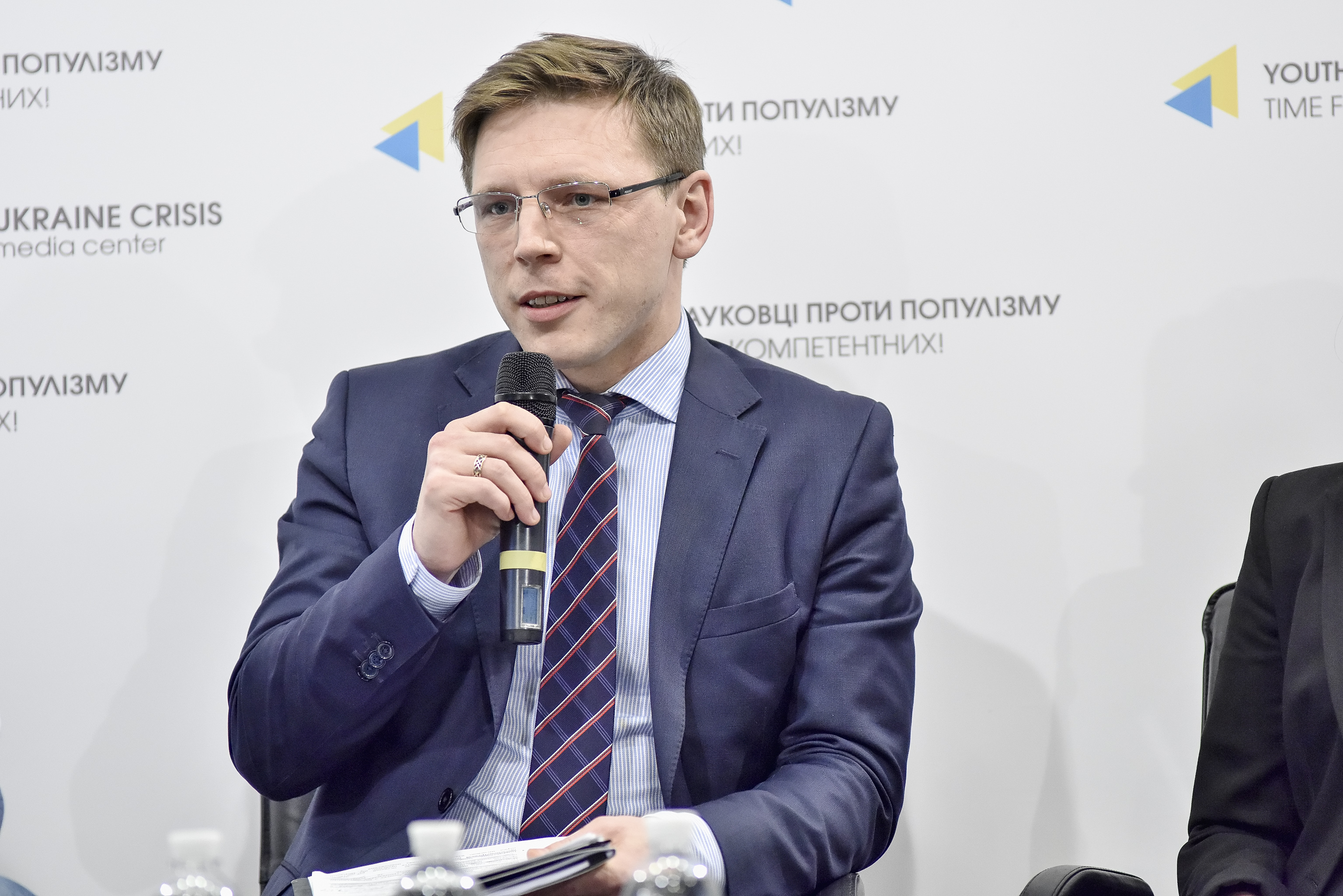
“These significant changes were possible due to the focus on providing and disclosing current work plans, reports for previous periods, information on administrative services, poor coverage of the activities of the public council and the results of public discussions,” the leading analyst at BRDO Ihor Lavrynenko said.

BRDO analysts analyzed the openness of ministries based on seven criteria: implementation of the principle of information transparency, the work with open information, publicity of action plans and reports, anti-corruption expert reviews and public law enforcement monitoring.

The rating is based on the analysis of 18 websites of ministries and 43 websites of central executive bodies. More details are at https://regulation.gov.ua/rating/transparency2
Source: kievvlast.com.ua.
Scandals and battles caused by barbaric constructions in the territories of cultural heritage are becoming a “landmark” of Kiev instead of the heritage itself. According to careful estimates of the KV, more than 50 architectural monuments has disappeared in the capital over 15 years. Including the Sennoy market, the Brodsky’s mill, the side wing of the architect Kazansky, Gostiny Dvor, the gate and the fence at the entrance to the Lower Lavra, protection embankments of the National Historical and Architectural Museum Kiev Fortress much loved by Kiev citizens and guests – this list could go on and on and on.
Good deeds were almost punished
The KV has found out that an independent non-governmental organization “Better Regulation Delivery Office” (BRDO) held a roundtable “New construction in the territories of cultural heritage sites”.
The following topical issues were announced for discussion at the roundtable: how to improve the effectiveness of control over the cultural heritage preservation, how to promote the development of historical sites, how to build a system of quality assessment of the impact of construction facilities on cultural heritage and create transparent rules for business.
During the roundtable, the BRDO team presented the Green Paper “Rolling review of the state regulation quality: “New construction in the territories of cultural heritage sites”.
The Green Paper includes a system analysis of state regulation. According to the authors of the document, the analysis demonstrated the following: the existing regulatory environment hinders the development of historical areas, creates a significant burden on business and does not guarantee the protection of cultural heritage.
According to BRDO, land development rules are not actually regulated in 80% of settlements located in historical areas of Ukraine – only 86 of 401 settlements have approved historical and architectural plans.
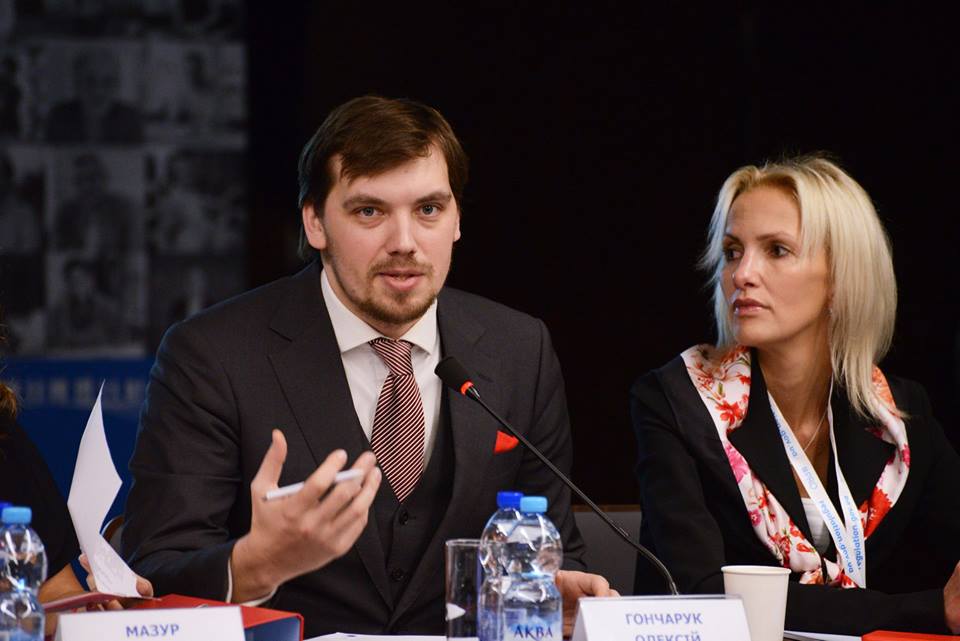
Photo: Aleksey Goncharuk, Head of the Better Regulation Delivery Office, and Olga Balitskaya, deputy of the Kyiv City Council.
The BRDO Office, the mission of which is to facilitate the creation of effective regulation and the improvement of economic freedoms in Ukraine, intentionally decided to gather activists defending historical heritage, government officials working in this area and construction business representatives before introducing any initiatives into the current legislation.
The purpose of the roundtable was a constructive discussion of legislative initiatives outlined in the Green Paper and the establishment of a working group to develop balanced changes that would meet the needs of all parties.
However, the public reaction largely was extremely negative. The presence of the Deputy Minister of Culture of Ukraine Tamara Mazur, whose name is directly associated with the destruction of historical heritage among defenders of cultural heritage, as Mrs. Mazur signed permitting documents for a number of scandalous new buildings, against the construction of which there are systemic protests, became a trigger.
Plus – construction business representatives. Today, the construction business is far from being a creation story in the public eye, and together with officials working in this area is a synonym for the destruction of the city’s architectural heritage.
Now the reputation of any real estate developer, even the most law-abiding and socially active, “reflects” the reputation of “malicious developers” for obvious reasons.
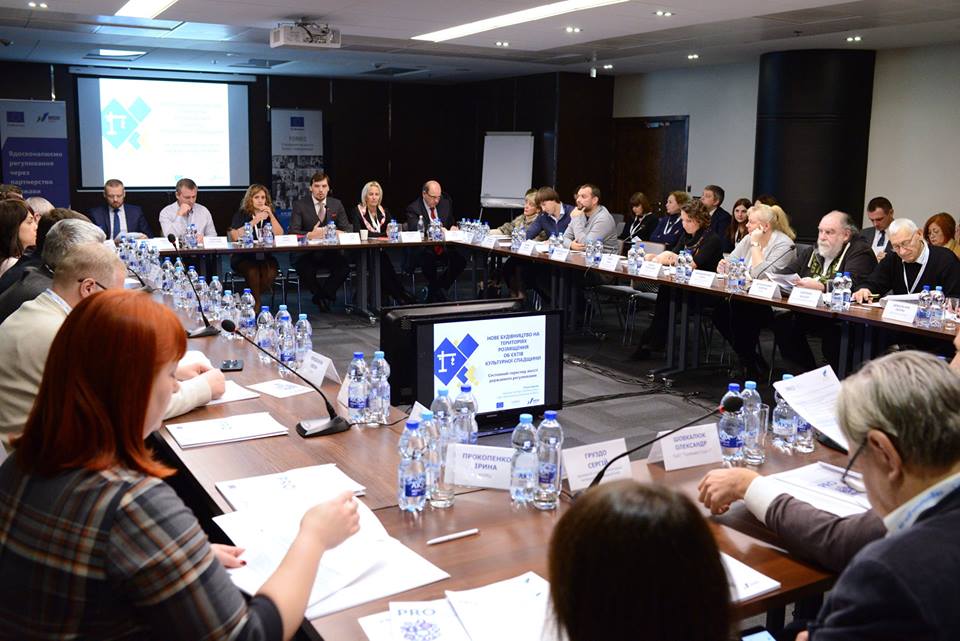
Photo: The roundtable. There are all parties: activists, architects and officials.
And although the BRDO Head Aleksey Goncharuk drew the attention of the audience to the fact that they gathered together for the public dialogue before taking any further steps to implement the Office’s initiatives for several times, the public insisted that this initiative was for the sake of business responding to the proposal to join the working group and implement measures on cultural heritage preservation in a civilized format.
Surprises are just around
The excitement of activists and architects attended the event was triggered by the BRDO’s initiative to cancel historical and urban planning verifications (HUPV).
They were not enthusiastic about the argument that approved historical and architectural basic plans (HABP) will regulate construction activities in historical territories. Viktor Trofimenko, the activist from Poltava and representative of the NGO Save Poltava said that even the HABP would not guarantee the protection of historical heritage citing a case of adding a restaurant and hotel complex to the building of the Nobility Assembly, which is the monument of national importance.
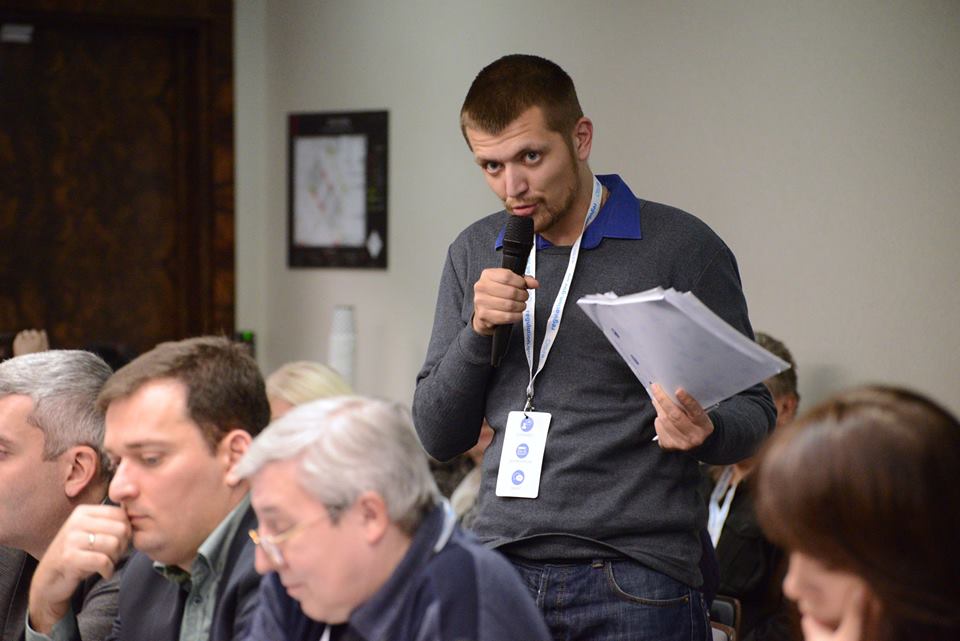
Photo: Viktor Trofimenko, activist of the NGO Save Poltava.
The former deputy of the Kiev city council and activist Elena Yeskina drew attention to the fact that, first of all, it was necessary to comply with the existing legislation and introduce real measures to punish violators.
The Tamara Mazur’s speech only served to add fuel to the controversy. She said that they (the Ministry of Culture) “had a drafted act, which was being considered by the government committee”.
“We are waiting for the approval of the Ministry of Regional Development and hope to obtain it soon. If the act is adopted before the new year, HUPV will be abolished in those settlements where there are historical and architectural basic plans next year, and in 2019, they will be abolished as a concept in general,” she said.
At the same time, the official complained that authors of the Green Paper “did not coordinate their work with the relevant ministry”.
Olga Balitskaya also pointed out that the current HUPV instrument was inefficient:
“I have not seen a single problematic construction project with no valid historical and urban planning verification over the past two years. There is the only advantage: these documents have a validity, and I hope that the ones expiring soon will no longer be extended.”
It should be noted that basic plans were adopted only in 20% of 401 settlements. In Kiev, the process is critically delayed – the document has not been adopted yet. The reason is a long-standing story related to dealing with comments from district architects.
According to the director of the Ukrainian State Institute of Cultural Heritage Olga Plamenitskaya, the historical and architectural basic plan developed by the institute was provided to the customer, which is the municipal association “Institute of General Plan of the Kyiv City” last December. After considering received comments on expanding protected areas, the document was again sent to “Kievgenplan” on June 18. The HABP was amended based on the comments received from district agencies two more times. The document was coordinated with the developed detailed plans of territories.
According to Mrs. Plamenitskaya, the document was amended three times because of the detailed plans of territories, some of which have not even been approved yet. The director of the Ukrainian State Institute of Cultural Heritage believes that the process of adopting the HABP is hindered by the Department of Urban Development and Architecture at the Kyiv City State Administration.
Georgiy Dukhovichny, who was the speaker of the Union of Architects of Ukraine, accused the authors of the Green Paper of being committed in favor of the construction business and said that proposed legislative initiatives would lead to the destruction of cultural heritage objects due to the lack of state monitoring and control mechanisms.
It is fair to say that the still existing state control has failed to preserve architectural monuments destroyed in the city, has not saved the city from vulgar terraces on historical buildings and sometimes clearly encourages corruption.

Photo: the side wing of the architect Kazansky destroyed to build a hotel in January 2010
“I have not read, but I criticize”
The author of this article had this impression after the roundtable. We can and should understand the activists – the above are data on huge and irrecoverable losses of historical heritage just in Kiev. Moreover, immediate interests of the construction business caused more harm than good to other real estate development companies aimed at long-term work in the market.
This is because the people now mostly perceive the word “developer” extremely negatively, and any construction site is perceived with hostility, no matter how legitimate and appropriate this construction is.
The main task of the Better Regulation Delivery Office is the deregulation of business, the removal of state barriers and the elimination of corruption “gaps” in the legislation. Since the construction issue is closely connected with social problems of society and systemic violations of regulations and laws, which last for more than a year, the organization took a risk and invited both the public, officials, and business representatives.
The “Green Paper” is a long document with 236 pages. For example, the measures proposed by the BRDO Office to preserve the historical heritage include the following:
The Green Paper also analyzed in detail the situation with HUDV, including problems related to the fact that they are not publicly available and that there is no legislative possibility of pre-judicial appeal against actions of the Ministry of Culture regarding the approval of HUDV or its inactivity. The current Ukrainian legislation does not regulate cases, when it is possible to cancel or change decisions of the Ministry of Culture regarding the approval of HUDV.
The authors also analyzed the problems having started with the analysis from the point of view of improving economic laws and ended up with what is important for the preservation of cultural heritage among other conclusions. For example, the Green Paper revealed that there was no procedure (not defined by the Cabinet of Ministers) for declaring territories or water objects protected archaeological areas, it was not defined by the central executive body.
There are such nuances that the document outlines in parallel the initiatives to eliminate duplication of functions of government bodies when issuing permits as well as to reduce the terms of approval and other problems in relations with legal entities, in other words, with “developers”.
However, the participants of this event didn’t speak about specific claims on key points and initiatives of the document, except for the abolition of HUPV. They didn’t report on a systemic analysis on specific legislative initiatives of the Better Regulation Delivery Office with the would-be risk of destruction of historical heritage.
As the BRDO press-service told the KV, the “Green Paper” is publicly available, and the Better Regulation Delivery Office considers all comments and is ready to organize meetings again.
In summary – continue working!
The call of the BRDO head to participate in the working group as well as the demands of activists to the Ministry of Culture to publish minister’s orders on the official website are the only results of this event for the moment.
And the KV will continue to follow the events. Now the situation necessitates resolving problems with the legislation and its compliance in protection of monuments as quickly as
possible. As well as having constructive proposals from all parties, taking into account the intensively growing social tension in society.
Photo: KV’s collage. Photos in the text: Better Regulation Delivery Office
KievVlast
Tatiana Shulga
Source: biz.nv.ua.
The topic of construction in the territories of cultural heritage sites has turned into the Gordian knot in Ukraine.
On the one hand, cultural heritage is an absolute value that should be preserved. On the other hand, it is necessary to build the appropriate infrastructure for its effective use by the population and increasing tourism opportunities. Of course, by following clear and transparent rules.
And in this context, we have problems that should be urgently resolved.
First, let’s deal with the concepts. Territories of cultural heritage sites are the areas of monuments of national and local importance, historical and cultural reserves, historical and cultural protected areas, protection zones, protected archaeological territories, historical locations of settlements, or, more simply, historical and cultural territories.
In Ukraine, all 1.5 thousand cities and small towns and about 8 thousand villages (more than 30% of the total) have cultural heritage sites. Today, 2.1 thousand objects are included to the list of cultural heritage objects not subject to privatization.
However, there is no single open database or register containing information on all historical and cultural territories of Ukraine. In such a way, there is no possibility to determine the principles of use of one or another land plot.
It is clear that in addition to usual urban planning documentation, construction activities in such territories should be regulated by a number of additional procedures. But they should be clear and reasonable. Because, in accordance with the current legislation, business should contact the same cultural heritage protection bodies from 4 to 10 times. Moving in a circle.
Many “circles of hell”
As a first step, a potential real estate developer should approve a land allocation plan to obtain a land plot. Next, he will need a historical and city planning verification, and, in particular, frequent scandalous cases happen at this stage. This stage consists of several steps. First of all, you will need to apply for a historical structure report and then get approval for it. Based on this document, you should order another “scientific research” – a historical and city planning verification, which is also approved by the Ministry of Culture. It should be noted that the need for approval of such a document is established only by methodological recommendations established by the order of the Ministry of Culture. No one act of the Cabinet of Ministers or law of Ukraine doesn’t contain these requirements.
But if the real estate developer doesn’t obtain such a verification despite of the fact that this order is advisory rather than mandatory, his activity will be hindered at the next stage of construction. Today, this “regulatory instrument” allows to go beyond the standards of general plans of the cities, in which they are approved, in particular, regarding the height of buildings in
historic city centers. Consequently, there are numerous scandalous real estate developments. Does it speak for corruption risks of the instrument? Sure.
Now we go on. After obtaining the historical and city planning verification, the developer receives the initial data for design and prepare his project. After that, he again contacts cultural heritage protection bodies to approve the project. Here is another interesting thing. Urban planning laws and laws on protection of cultural monuments contain contradictions as for the approval. The urban planning legislation abolished this approval, as explicitly stated in the Law of Ukraine “On Architectural Activity”: if a project is developed on the basis of urban conditions and restrictions, no additional approvals are required, in particular, from cultural heritage protection bodies. Instead, the Law on Protection of Cultural Heritage provided for the necessity to approve the project. And, in fact, it is carried out, although there are no subordinate acts regulating its concept and procedure. Moreover, there is still an open question for compliance with what the officials check the project submitted.
You won, and they approved! You can start construction works. But no, please wait. Before starting any activity on a land plot, you also need to find out whether its archaeological value was estimated. It is impossible to learn about this fact by your own, because there is no open information. You should make a query to the Institute of Archeology, which makes a verdict, whether this territory was estimated or not. If so – the real estate developer should obtain a permit for excavation works and again contact the cultural heritage protection bodies. As a reminder – it is after the developer has contacted the bodies for several times to approve the historical and city planning verification of the project… If not – there is another problem: actually, we have unlimited terms for archaeological excavations in our country. And as for the entrepreneur who have already invested in the land plot, project documentation, etc. – this also creates unlimited opportunities for blackmailing offenses and losses due to unpredictable prolongation of construction terms.
Finally, after all above mentioned steps, the developer should obtain an authorization to work from cultural heritage protection bodies. It would be logical if there were no prior approvals as well as permit to start construction works.
International requirements and umpteen “extra floors”
Problems related to the protection of UNESCO World Heritage sites located in Ukraine make this topic even more acute. The UNESCO Committee is constantly pointing the problem of uncontrolled real estate development of the buffer zone to Kyiv in its decisions. In this context, a good example is a building located on the Klovsky Descent and rising just next to the Lavra, when viewed from the Left bank at the Right one. This building is located in the buffer zone of the Kyiv-Pechersk Lavra and affects the landscape of Kyiv hills protected by UNESCO, so construction on this territory should be regulated by the state.
Consequently, having assessed all problematic points, the regular UNESCO monitoring mission determined that it is necessary to carry out a full inventory of already finished and planned high-rise construction projects using 3D visual simulation as well as impose a ban on such projects until UNESKO analyzes the impact assessment of such construction activities in terms of world heritage sites. And as for the building on the Klovsky Descent, UNESCO demands none other than demolishing extra floors.
Recommendations
Given the scope of problematic points, the sector requires systemic changes. The following measures will help to implement them:
The software development market is the only export sector, which is steadily increasing in Ukraine, having demonstrated an increase of 58% in 2013-2016. In 2016, exports of software development services amounted to $3.2 billion that brought the sector to the third position in terms of currency revenues and provided 26% of total export of services. The market creates more than 100 thousand highly paid jobs, 56% of which are in regions that facilitates their dynamic development.
Top three cities leading in the IT sector includes Lviv, Kharkiv and Kyiv. For example, there are 15 thousand of specialists employed in the sector in Lviv, and the turnover of 192 local IT companies is 14.4% of the city’s GRP. The Lviv IT market has tripled over the past 5 years turning Lviv into an IT hub city.
The market has huge potential for growth, but instable tax regulation, lack of specialists and a wide range of regulatory barriers are the factors that hinder the sector’s development. The government and IT-business representatives as well as educationalists discussed the ways to remove them during the regional Round Table “IT Future Talks. Lviv: Software Development Market Regulation” as part of the Public Dialogue #PRODialogue held at the Metropolitan Sheptytsky Center on November 23.
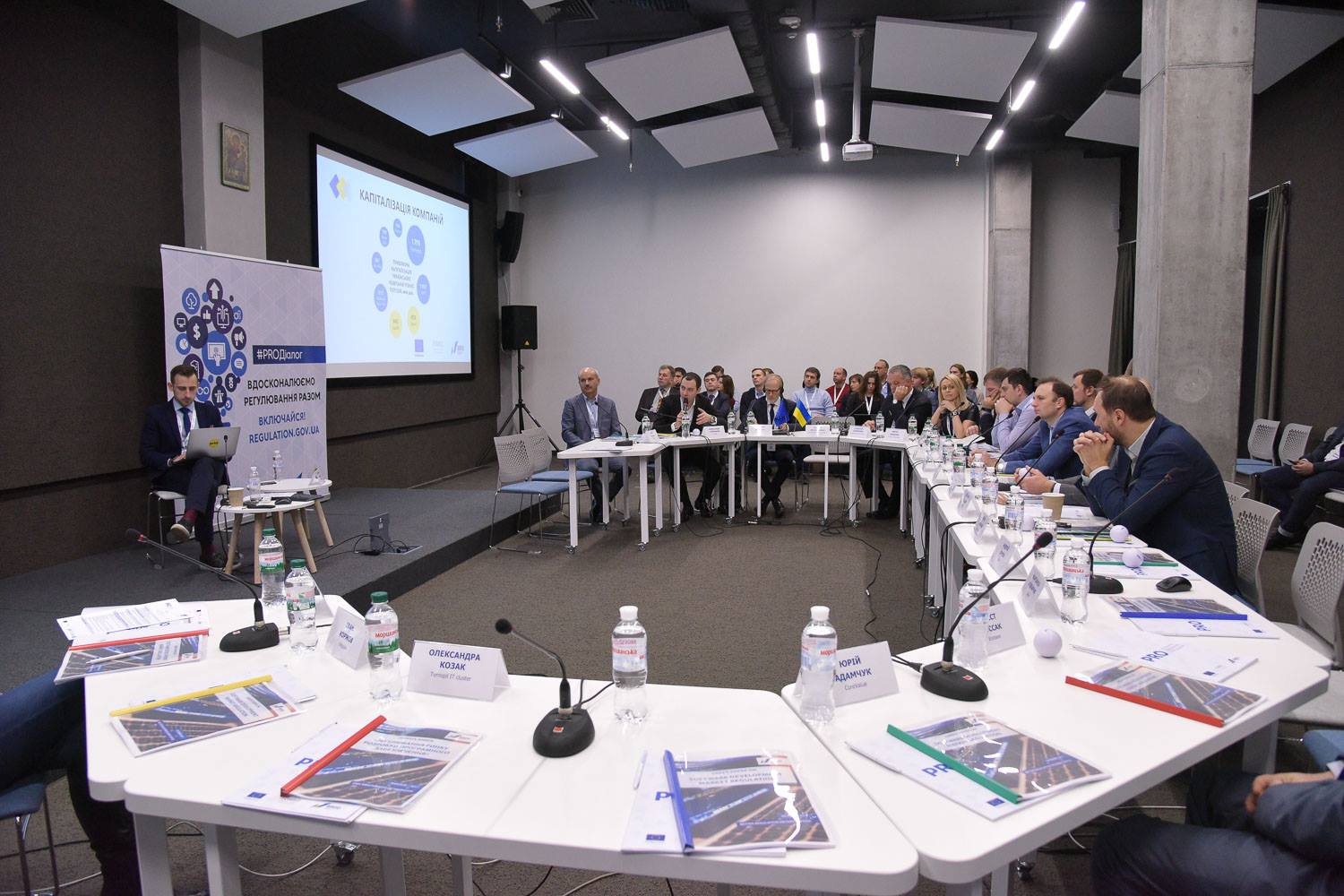
At the opening of the event, the Deputy Mayor of Lviv Andriy Moskalenko said, “Today, we have a chance to discuss how we will become the most competitive the next day. Lviv makes a significant contribution to the opportunities of the IT sector, and this is one of our priorities. We are ready to be involved as much as possible in all processes and provide our assistance.”
The sector is a powerful economic multiplier: 1 job in IT creates 3 more jobs in related areas. The wage of an IT specialist is 5 times higher than the average wage in the country. At the same time, the high level of payments is provided not only in the capital, but in regions as well.
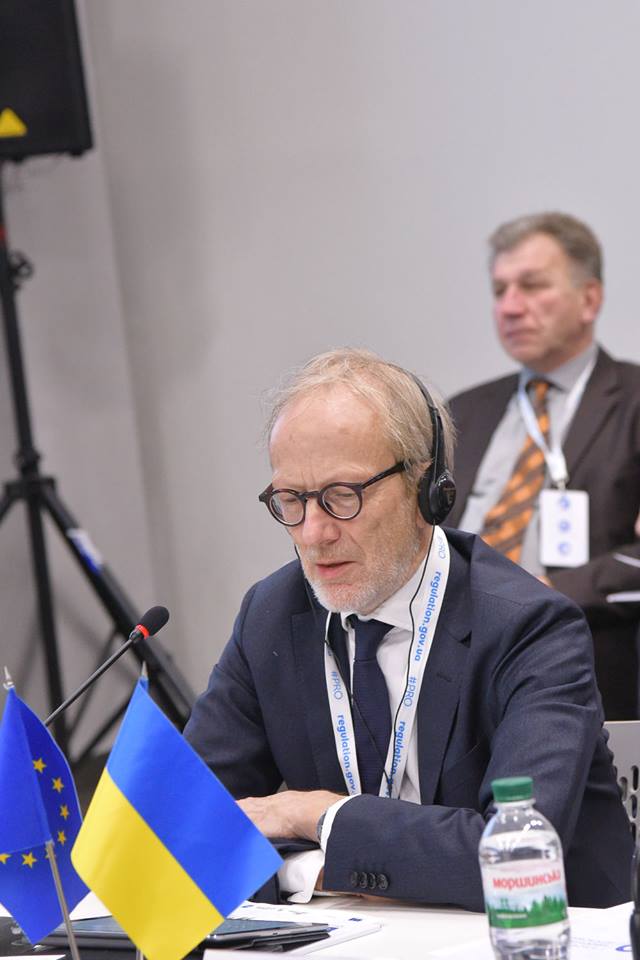
The Project Manager of EU4Business/FORBIZ in Ukraine Matthias Halder stressed the importance of developing the entrepreneurship and improving the business climate in the sector: “Ukraine is one of the most attractive countries for placing orders in the area of outsourcing business processes and IT. To ensure the sustainable development of the sector, we should focus on providing the stable taxation environment, developing the human capital and removing customs and regulatory barriers. To make effective changes, it is necessary to involve the business into the dialogue.”
The Better Regulation Delivery Office (BRDO) has analyzed the regulatory environment of the sector and presented its results in the Green Paper. According to experts, the rapid development of the sector was possible due to the lack of special sectoral regulation as well as due to favorable tax conditions. The amount of direct taxes and fees paid by sector representatives has increased by 88% over the past 3 years, reaching 7.1 billion hryvnas in 2016. At the same time, due to the instability of the simplified taxation model, software market companies are limited in the long-term planning and investment attraction.
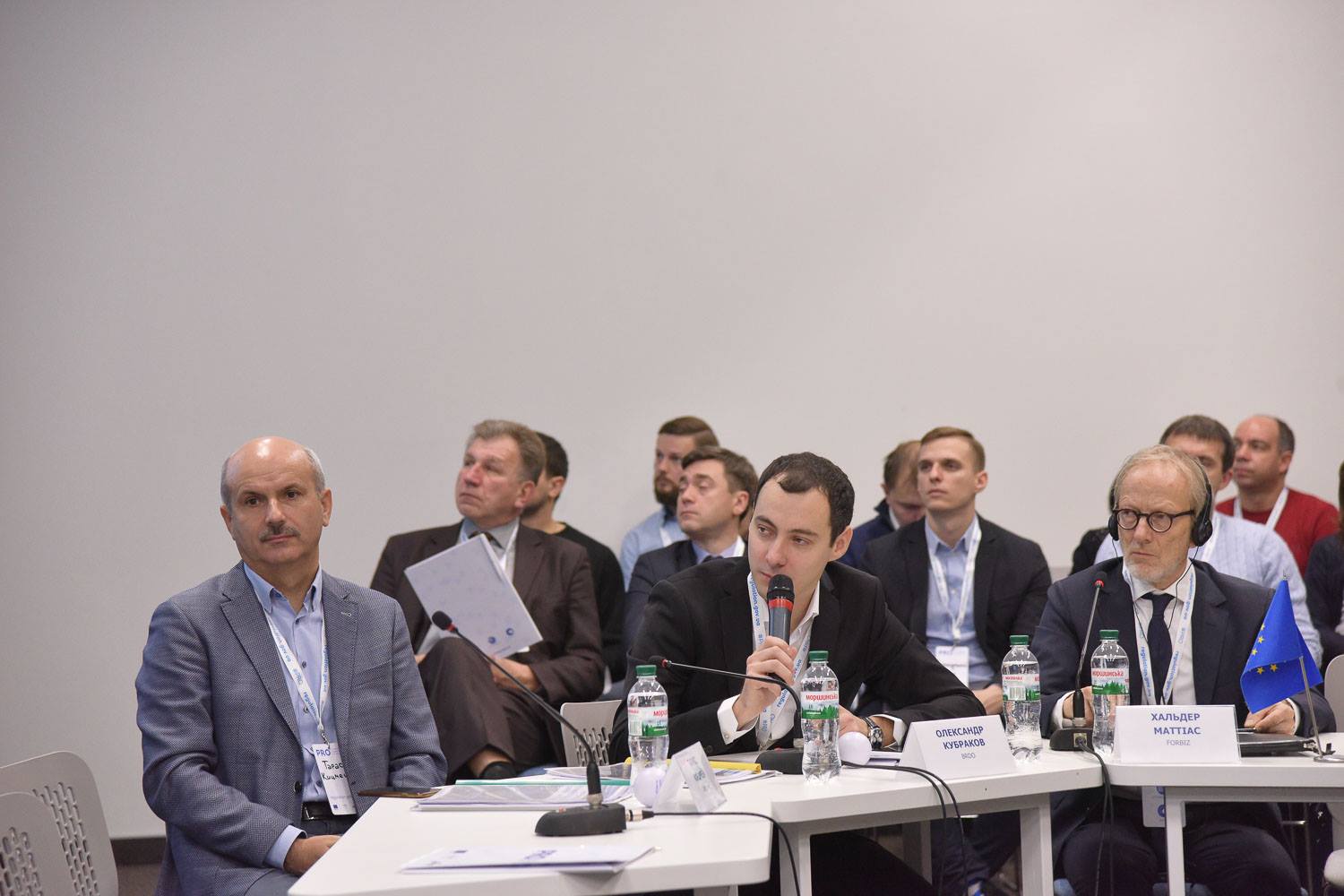
“This is a successful example of an efficient self-regulated market, and this should not be changed. The capitalization of the 10 largest Ukrainian IT companies currently exceeds $4 billion, and unlike raw material producing giants, their value is based on human capital. If the government provides the stable taxation environment, quality changes in industry-specific education and the elimination of some regulatory barriers, sector profits can increase twofold – to $6 billion in 2020,” the head of IT sector at BRDO Oleksandr Kubrakov assures.
Participants actively discussed possible taxation models for the IT industry. The people’s deputy of Ukraine, co-founder of ELEKS Oleksiy Skrypnyk said, “We should create a harmonized taxation system, in particular for the IT sector. This area is a top priority in changing the paradigm of the country’s economy into the innovative one as well as in revealing investment opportunities.”
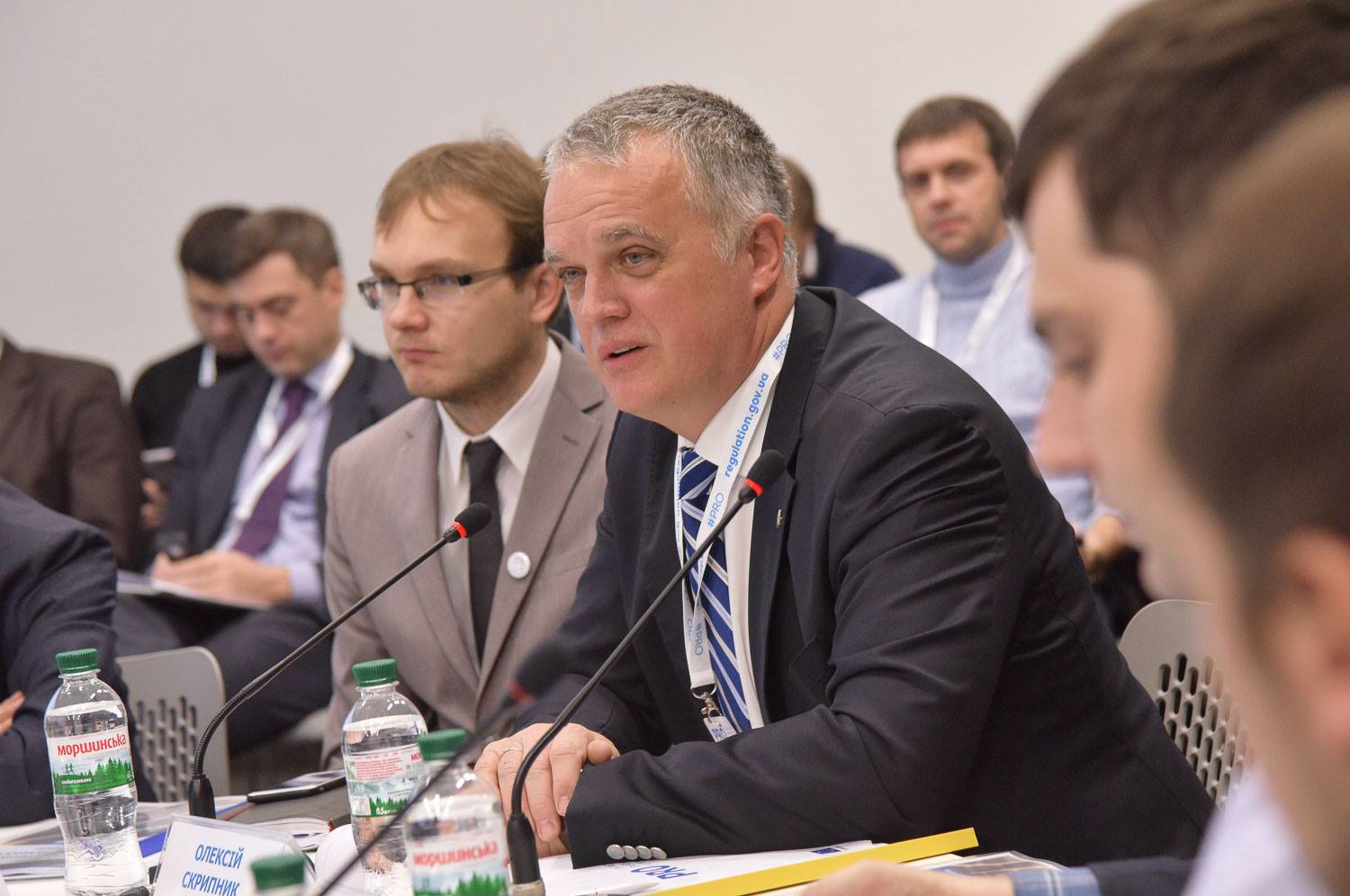
The educational issues were also brought into focus during the event, as one of constraining factors is the labor shortage in the market. The reasons for the labor shortage include the necessity to improve industry-specific education, a significant outflow of IT graduates from the country, reaching 30% as well as difficulties of attracting foreign specialists to the market.
“If we invest in education, we will see systemic changes in the country. Progressive youth is a powerful driver toward this goal. And the task of the government is not to prevent wise people from doing their business,” the Lviv City Mayor Andriy Sadovy summed up.
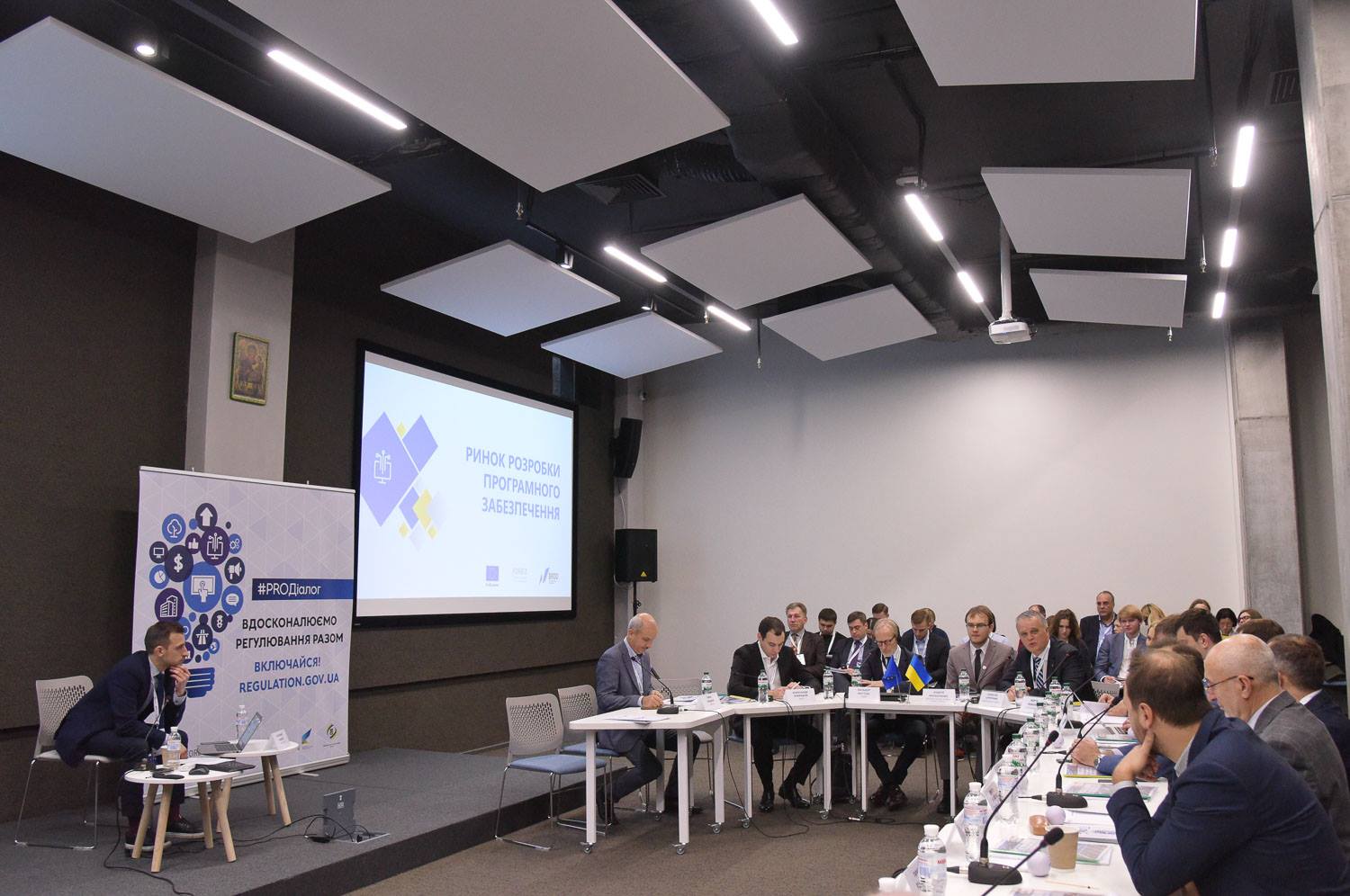
The event was also attended by Taras Kytsmey, co-founder and board member of SoftServe, Andriy Pavliv, CEO and co-founder of N-iX, Supervisory Board Chairman, Lviv IT Cluster, Vitaly Sedler, Intellias CEO, Ihor Salamin, PLVision, Yaroslav Prytula, Dean of Faculty of Applied Sciences at Ukrainian Catholic University, Dmytro Fedasyuk, Assoc.Prof. Vice-Rector on Scientific and Pedagogical work at Lviv Polytechnic National University, Vitaliy Kukharsky, Vice-Rector on Scientific and Pedagogical Work and Informatization at Ivan Franko National University of Lviv, Zenoviy Veres, Lviv IT Cluster Education Director, representatives of IT-business, experts and the public.
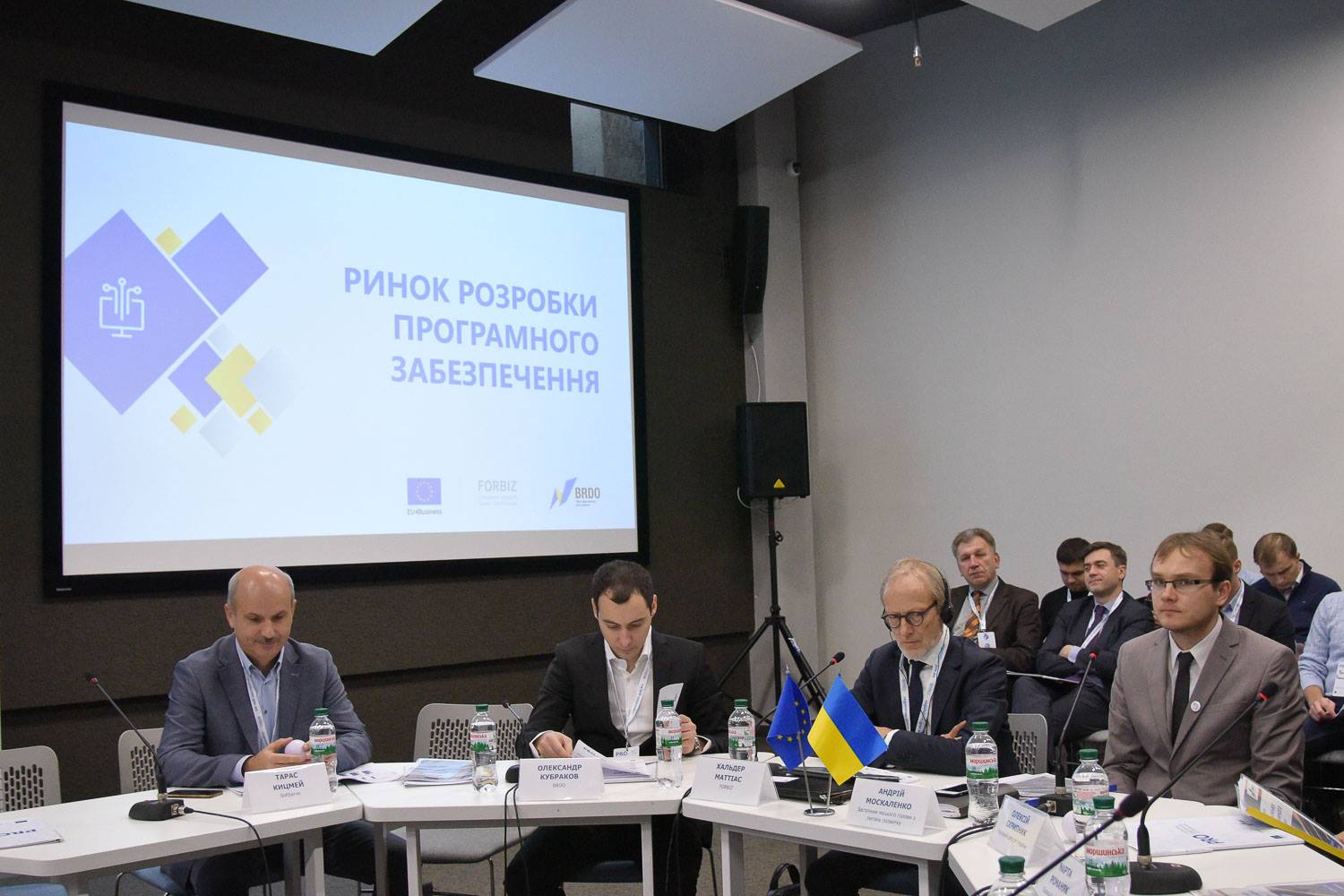
On November 21, 2017, the Ministry of Regional Development, Construction, Housing and Utilities represented by the Deputy Minister of Construction Lev Partskhaladze and the NGO “Together against corruption”, the German Corporation for International Cooperation (GIZ), the NGO “Better Regulation Delivery Office” (BRDO), the Confederation of Builders of Ukraine, the Construction Chamber of Ukraine, the National Union of Architects of Ukraine, the Institute of Architecture, Urban and Regional Studies at NSAU, the SE “DIPROMISTO” and the SE “UkrNDIprocivilbud” represented by their representatives singed a Memorandum of cooperation on the development and implementation of the concept of public administration in construction.
“This concept will allow to gather all information on construction permits and make it public creating a single public source of relevant and reliable information – the Urban Planning Cadastre. It will contain all data on construction from the State Land Cadastre, the State Register of Rights to Immovable Property, geospatial data of technical inventory and registration of immovable property items as well as the unified address register. This will make construction-related activities more transparent and easier, reduce possible corruption risks and improve the investment climate,” Lev Partskhaladze said before signing the Memorandum.
In turn, the coordinator of the government and public initiative “Together against corruption” Oksana Velychko noted that an important step was not only the development of the concept, but also its implementation. “It is very pleasant that government authorities meet the needs and actively cooperate with the public. I hope that our further join work will be successful and the new concept will be effective. We will involve as much public representatives and experts as possible in developing this important document. There is a lot of work to be done and it is related not only to the concept development, but also to its implementation,” she said.
“Our task is to achieve a balance of interests of all stakeholders: the public, the government and businesses. The signing of this Memorandum is a very important event for the urban development area. We are making an important step towards the development of a clear strategy in urban planning,” the President of the National Union of Architects of Ukraine Volodymyr Husakov said.
Mathias Brandt, the Director of the GIZ project “Integrated Development of Cities in Ukraine: “We are very pleased to contribute to the development of this Concept, share our experience and experience of Western governments. Transparency in construction is very important today. It will help create new jobs, implement new important projects and, most importantly, ensure the sustainable development of cities.”
Olena Shulyak, the Construction Sector Head at BRDO: “The Better Regulation Delivery Office is working to systematically review the construction markets and regulatory instruments in the sector. And many aspects are related to information. We will be very glad if the assistance of our specialists in the development of the new Concept makes this process more transparent and effective.”
Vitaly Hrusevych, the Executive Director of the Confederation of Builders of Ukraine: “To my mind, both the initiative to create the concept of public administration in construction and the signing of the multilateral memorandum on its development are very important steps. We face many tasks, because this concept raises issues that are of high relevance today. We should do everything to achieve a successful outcome.”
“I am very glad that government authorities involve more and more public representatives in solving important state issues. I am sure that we will achieve a great result only with joint efforts, together with
non-governmental organizations and all interested parties,” the First Vice-President of the Construction Chamber of Ukraine Stanislav Stashevsky said.
Ivan Shpylevsky, the Director of the SE “Y.Bilokon Ukrainian State Scientific-Research Institute of Urban Design “DIPROMISTO”: “The signing of the Memorandum on the development of the public administration concept is the legal consolidation of the work performed by the Ministry of Regional Development and non-governmental organizations and research institutes on improving the situation in the construction market of Ukraine today.”
“It is necessary to ensure creating a situation when a consensus on the interests of all parties, in particular, citizens, investors, builders and designers, will be reached. There is an acute social need for such a concept. And this can really be the effective public administration based on new approaches and opportunities,” the Director of the SE State Scientific, Research and Design Institute for Civil Construction “UKRNDPICIVILBUD” Oleksandr Chyzhevsky said.
“No other sector in Ukraine has set a similar task yet. We launched a very important and responsible initiative, which will improve construction activities. The developed concept can serve as an example of implementing public and transparent approaches for all other sectors,” the Director of the Institute of Architecture, Urban and Regional Studies at NSAU Yuriy Chudnovsky added.
The concept of public administration will contain the basic principles of implementing e-government in urban development activities. Its implementation will help:
According to the Memorandum, the parties agreed to cooperate in the development, public presentation, open discussions and adaptation of the Concept, its approval by the Government as well as in drafting regulatory acts for its implementation.
Source: delo.ua.
BRDO experts provided recommendations that will help to make Ukraine more friendly for IT specialists.
The Better Regulation Delivery Office (BRDO) established at the initiative of the Ministry of Economic Development and Trade has developed the so called Green Paper on regulation of the IT sector. We examined how the software development market operates in the last article devoted to this document. But how is it regulated?
The BRDO Office admits that Ukraine has no comprehensive regulation of the software market.
There are no legislative acts that regulate the sector as well as no licensing. And such a situation is not a result of any special reform or deregulation, but it happened in a natural way. “The lack of strict regulation of the market facilitated its development and did not bring additional risks, therefore, in our view, it will be effective to continue refraining from introducing special regulation for the software development sector,” experts say.
Language difficulties
However, according to experts, there are a number of processes requiring state participation in the sector. One of them is the hiring of personnel and payment for labor. “Given the need to attract foreigners to work on export-oriented projects, we should pay particular attention to the process of employment of foreigners in Ukraine,” analysts say. This aspect is especially important for the IT sector, as there are many international companies working in the market and attracting a large number of foreign specialists. Earlier, they passed through the same registration procedure as all other foreigners who find employment in Ukraine. Starting from September 27, it is easier to register foreign IT specialists due to amendments to the Law “On employment of the Population”.
So, now a work permit is issued for them for a term of up to three years.
In addition, they don’t have minimum wage restrictions. In other sectors, when employing a foreigner, an employer can obtain a permit if he pays a position wage in the amount of at least 10 minimum wages. As experts say, the second factor will not have a significant impact on the employment of experienced specialists, but it will help attract young IT specialists from abroad.
However, this aspect includes other problems that complicate the life of foreign specialists. In particular, this is the requirement to leave Ukraine after receiving a work permit and return to register a residence permit. Today, a foreigner can obtain it after receiving a long-term visa, which, in turn, is issued outside the country. According to experts, the impossibility to obtain it in Ukraine complicates the process of employment of foreign IT specialists increasing the amount of time and expenses required. “In our opinion, providing foreigners with an opportunity to obtain a long-term visa in the Department of Consular Service of the MIA in Ukraine could be a possible solution to this problem,” BRDO experts say.
However, specialists from countries, which do not require a long-term visa, face the same situation.
They still have to leave the country after obtaining a work permit, but only because the State Migration Service of Ukraine refuses to accept documents for a residence permit, if the date of entry into Ukraine is prior to the date of obtaining a work permit. Having analyzed regulatory documents, BRDO experts concluded that this barrier had no legal basis and “could be removed by changing the wrong law enforcement practice”.
Experts say that another negative point of the employment of foreigners is that it is impossible to cooperate with companies within the framework of the IE model. BRDO experts believe that solving this issue and allowing to register foreign IT specialists as IEs, Ukraine could compensate the outflow of industry specialists abroad.
Got caught by IE
Another feature of the sector is the fact that labor costs in IT companies amount to 80% of their income. According to experts, there is a significant total tax burden on employee payments, which exceeds 36%, in companies of this sector, while in many industries, these expenses rarely exceed 10%. That is why many companies register their employees as individual entrepreneurs (IEs), which allows to significantly reduce the tax burden. And, as the BRDO Office explains, this fact gives Ukrainian IT companies competitive advantages in the world market.
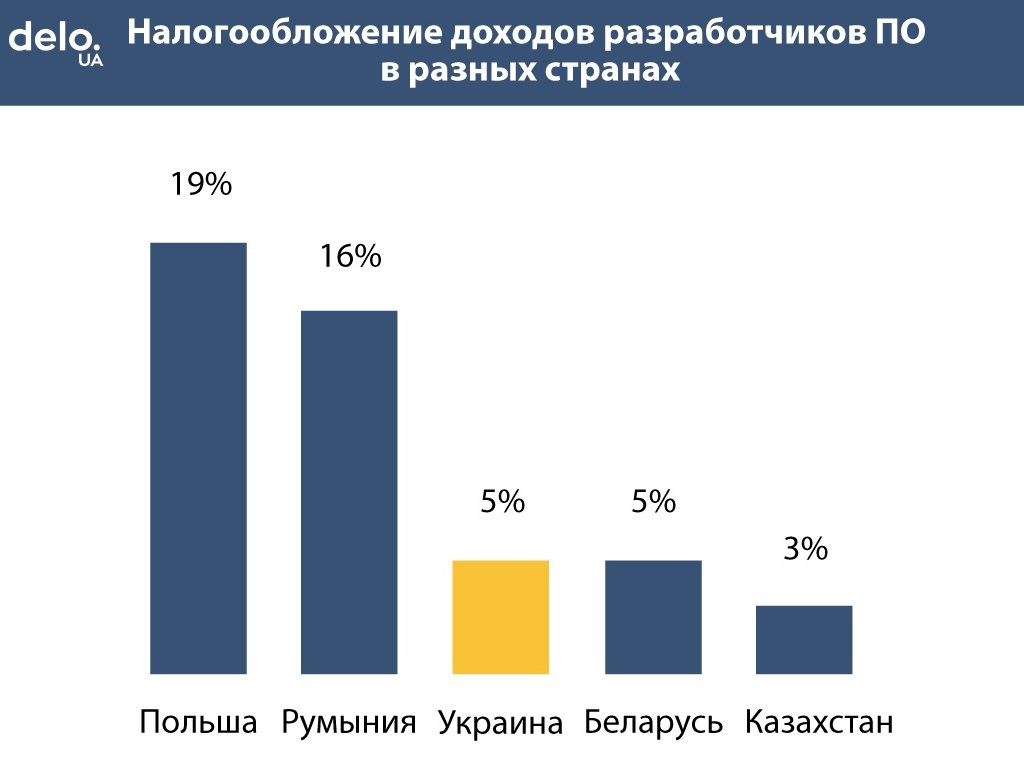
However, experts see certain risks in using such a model. In particular, companies may suffer if requirements for single tax payers of the third group are changed as well as if economic relations between IEs and companies are turned into labor relations.
To minimize these risks for the sector and prevent decreasing its investment attractiveness, analysts propose two options:
“We believe that if a long-term guarantee is created for the software development market, the sector will be able to show even more rapid growth,” experts say.
Regulation is also needed in the process of importing prototypes of equipment for testing and developing software products for it. Now, when importing RED and emitting devices, it is required to provide a conformity document, which, as a rule, is received by companies that import serial products. When importing prototypes, producers can not provide such a document and it is costly for them to receive it, since just one or two radio electronic devices are usually imported to test software. Therefore, experts believe that this issue can be solved simply by
making an exception for the procedure of RED registration, allowing to import no more than 10 product units without a special conformity declaration.
All for export
Another process where the state can help the sector is the regulation of export operations and, in particular, the requirement for mandatory sale of foreign currency proceeds. As it is known, in Ukraine, there is the NBU’s Resolution, according to which, IEs and legal entities are obliged to sell 50% of foreign currency proceeds. This provision doesn’t significantly affect outsourcing companies, since most of their income is used to pay wages to specialists, which should be in hryvnas. At the same time, product-oriented companies selling their products and services in the global market are very sensitive to this resolution, and such a provision has a negative impact on their development.
Expert opinion: Executive Director of the IT Committee of the European Business Association Konstantin Vasyk
The IT Committee as well as other industry associations consider this study is a litmus test for the state of the IT sector and, particularly, an additional opportunity to bring into focus the further development, support and additional incentives into the high-tech industry. For example, the Green Paper has described for the first time the comparative dynamics of classic trends of Ukrainian exports, such as food products and raw materials, metallurgy and machine building products along with the software development.
We constantly emphasize that the IT sector ranks third in the Ukrainian export structure and is 3.3% of the country’s GDP.
And when, for example, the dynamics of IT export growth increased by 58% over the last three years against similar but negative rates of other sectors, this is more than the figure. This indicates gradual changes in the structure of our export as well as put emphasis on resources we have now to be competitive in the global market. But this requires also certain regulatory actions from the government. Key proposals on what exactly the government should do first are described in the study.
In fact, it is not referred to the regulation of the IT sector yet. The study demonstrates strong points and positive developments of the sector and shows problem areas, which will require further development by all parties in the future. And actually, in our opinion, the study is aimed attracting even more attention of the authorities to problems of the IT market.
Today, the software development industry is the least regulated.
This fact as well as the talent and professionalism of Ukrainian programmers facilitate the growth of the Ukrainian IT sector.
Authors of the study suggest the best practices that mainly concern the employment and the entry of foreign developers into the country, the relaxation of requirements for importing equipment prototypes as well as the most topical issue – maintaining existing tax conditions. The IT Committee fully supports and shares the proposed initiatives. As for IT Committee’s proposals, it sees the need for further development of a special export strategy for the IT sector of Ukraine.
The EBA’s IT Committee is convinced that now any local regulation of the Ukrainian export industry, which is competitive in the global market, is highly undesirable.
The Association Committee and other specialized associations are highly skilled experts on relations with representatives of various branches of government. That is why, we are trying to start effective communication with the “triangle” of the Ukraine’s Presidential Executive Office – the Cabinet of Ministers – the Parliament of Ukraine.
The state can facilitate the further IT development directly through maintaining the existing tax environment of the sector, developing the education system, and involving experienced specialists from other countries in the domestic IT industry.
Written by Oksana Tarasenko
[gview file=”https://en.brdo.com.ua/wp-content/uploads/sites/5/2017/11/Dajdzhest_16.11.17.1511248207.pdf”]
There are 130 thousand of cultural heritage sites in Ukraine. Provided their preservation and effective development of the surrounding infrastructure, the country can significantly increase its cultural and tourism potential. However, the current regulation does not provide protection for cultural heritage and provokes numerous corruption abuses.
As of October 1, 2017, there are 906 cultural heritage objects of national importance and 8,065 local objects in the State Register of Immovable Monuments of Ukraine. To protect them, they are included in the List of Historical Populated Sites, and their number is currently amounted to 401 settlements in Ukraine. According to the Law of Ukraine “On Regulation of Urban Development”, it is necessary to define regimes of sites development regulation and develop historical and architectural key plans for settlements, which are historic sites, within defined areas in the framework of general plans. However, as of September 2017, such plans are approved only in 86 settlements, that is, in 20% of places of historical interest in Ukraine. So, land development rules are not actually regulated in 80% of settlements. Moreover, 50% of regional centers, particularly, Kyiv and Lviv, where UNESCO World Heritage sites are located, do not have key plans.
Government, business and public representatives tried to find ways of solving the market regulation problems during the round table “New construction in the territories of cultural heritage sites” organized by the Better Regulation Delivery Office (BRDO) with the support of EU4Business\FORBIZ as part of the Public Dialogue #PRODialogue on November 20.
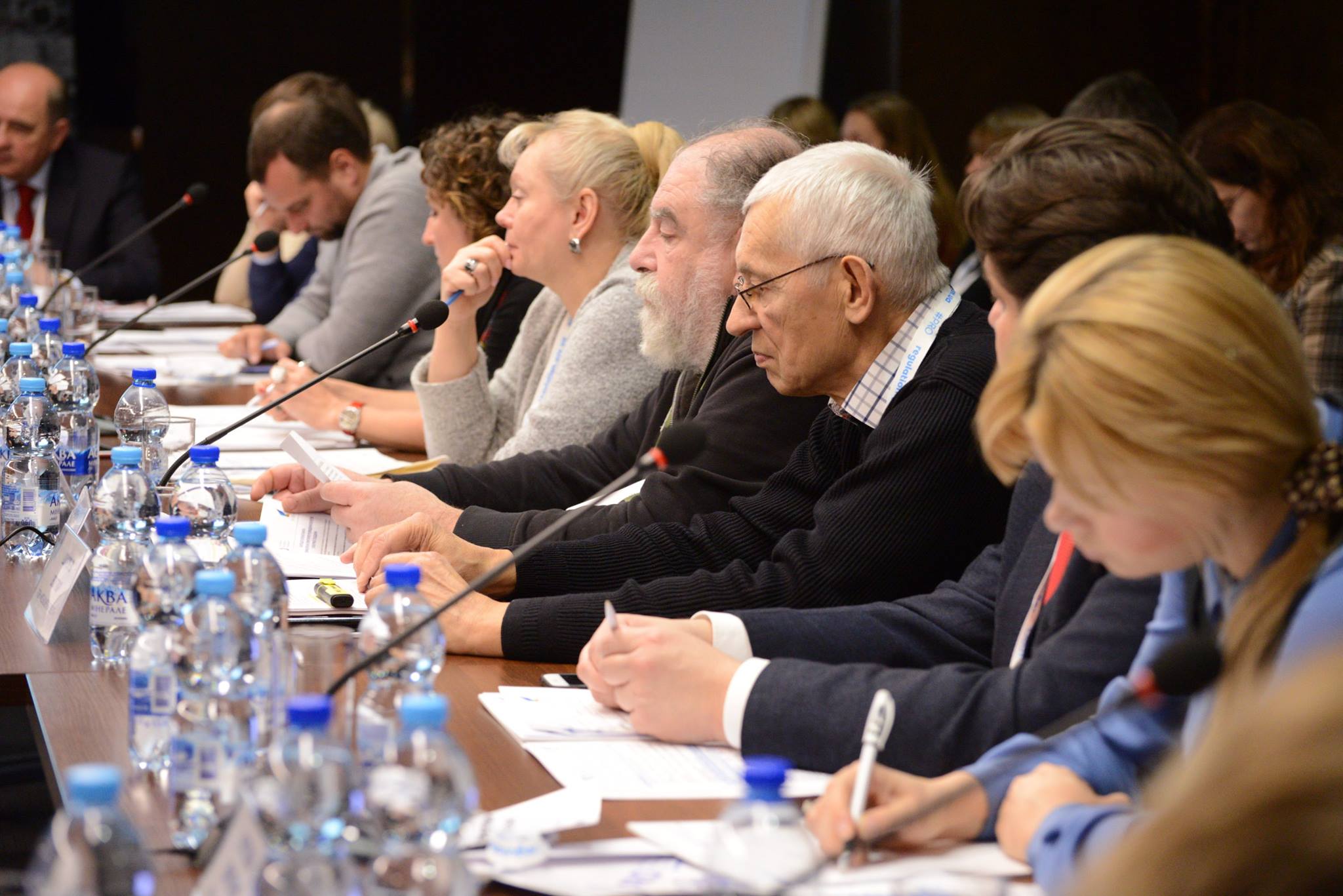
The state is using 8 instruments when regulating new construction in the territories of cultural heritage sites. An expert analysis of these instruments and related procedures has revealed that the current regulatory framework does not provide adequate protection of the cultural heritage and creates a significant burden on business. According to the BRDO study, 10 of 18 acts regulating the market should be updated. The functions of cultural heritage protection bodies are duplicated, there is no open information on the boundaries of cultural heritage sites, but there is a legislative conflict regarding the necessity of using instruments and the uncertainty of procedures.
“An owner of construction projects in the territory of cultural sites has to appeal to the same cultural heritage protection bodies from 4 to 10 times, which does not guarantee their preservation. Some instruments create artificial barriers to use territories, while the laws do not provide for such an instrument as approving the historical and city planning verification at all. Its development is established only by methodical recommendations of the Ministry of Culture, but the use of this instrument allows to go beyond the standards of key plans and carries significant risks for the cultural heritage preservation,” the Construction Sector Head at BRDO Olena Shulyak said.
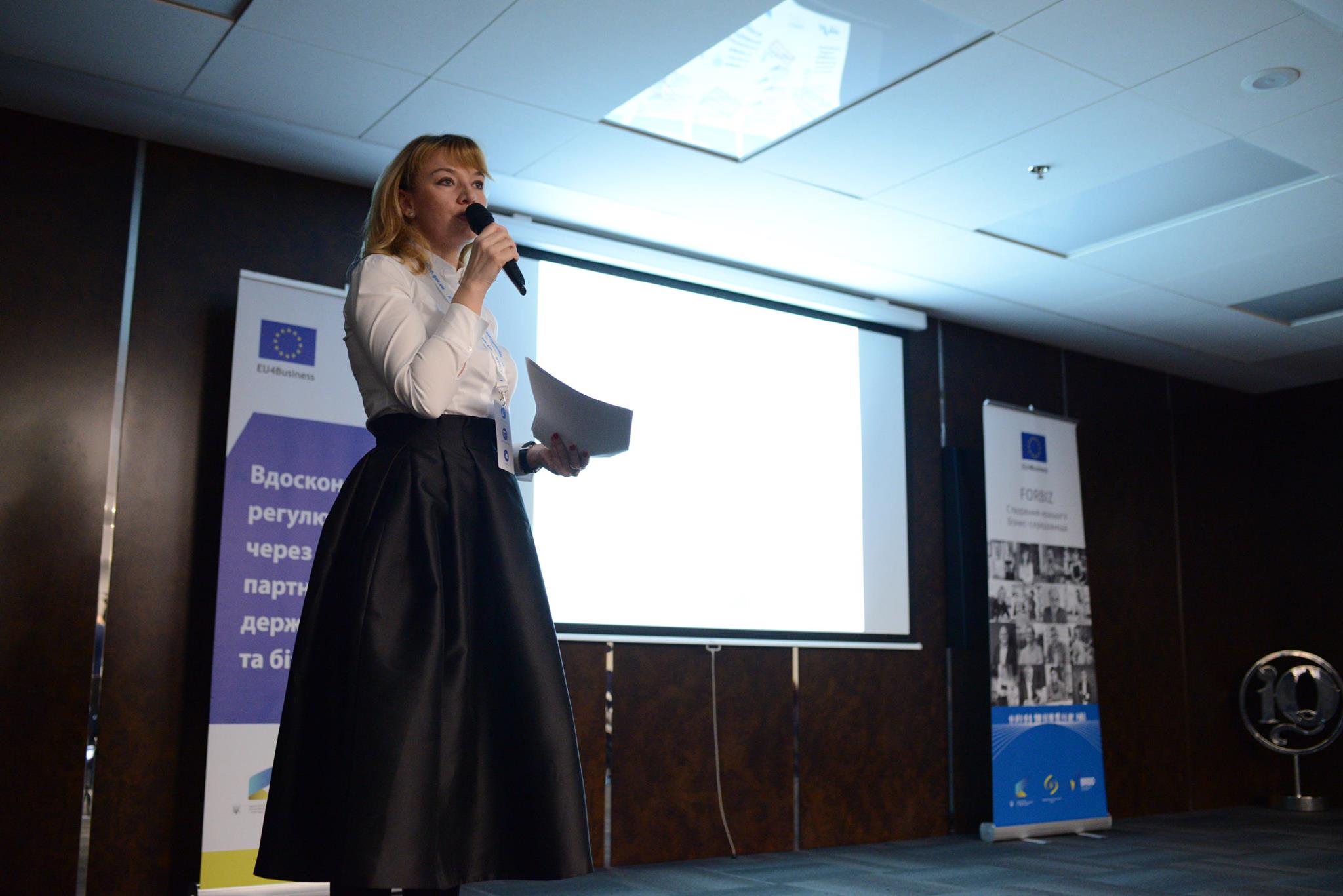
The Deputy Minister of Culture of Ukraine Tamara Mazur agrees with the doubtful practicability of this instrument. “We support the abolition of historical and city planning verification, the relevant resolution is currently being approved by the Cabinet of Ministers of Ukraine. From January 1, it should be abolished in those settlements, which already have key plans, and finally – in a year. We share the vision of BRDO and hope that we can implement the measures
described in the study to ensure the transparent operation of the system and the preservation of cultural heritage,” she said.
Despite the large number of permitting and approval procedures, there is no effective system and procedure for assessing the impact of construction facilities on cultural heritage, in particular, at the global level, in Ukraine. The UNESCO World Heritage Committee is constantly emphasizing this problem. There are 7 UNESCO World Heritage sites in Ukraine, and high-rise construction in the buffer zone may have a negative impact on their view presentation and even may lead to their depreciation.
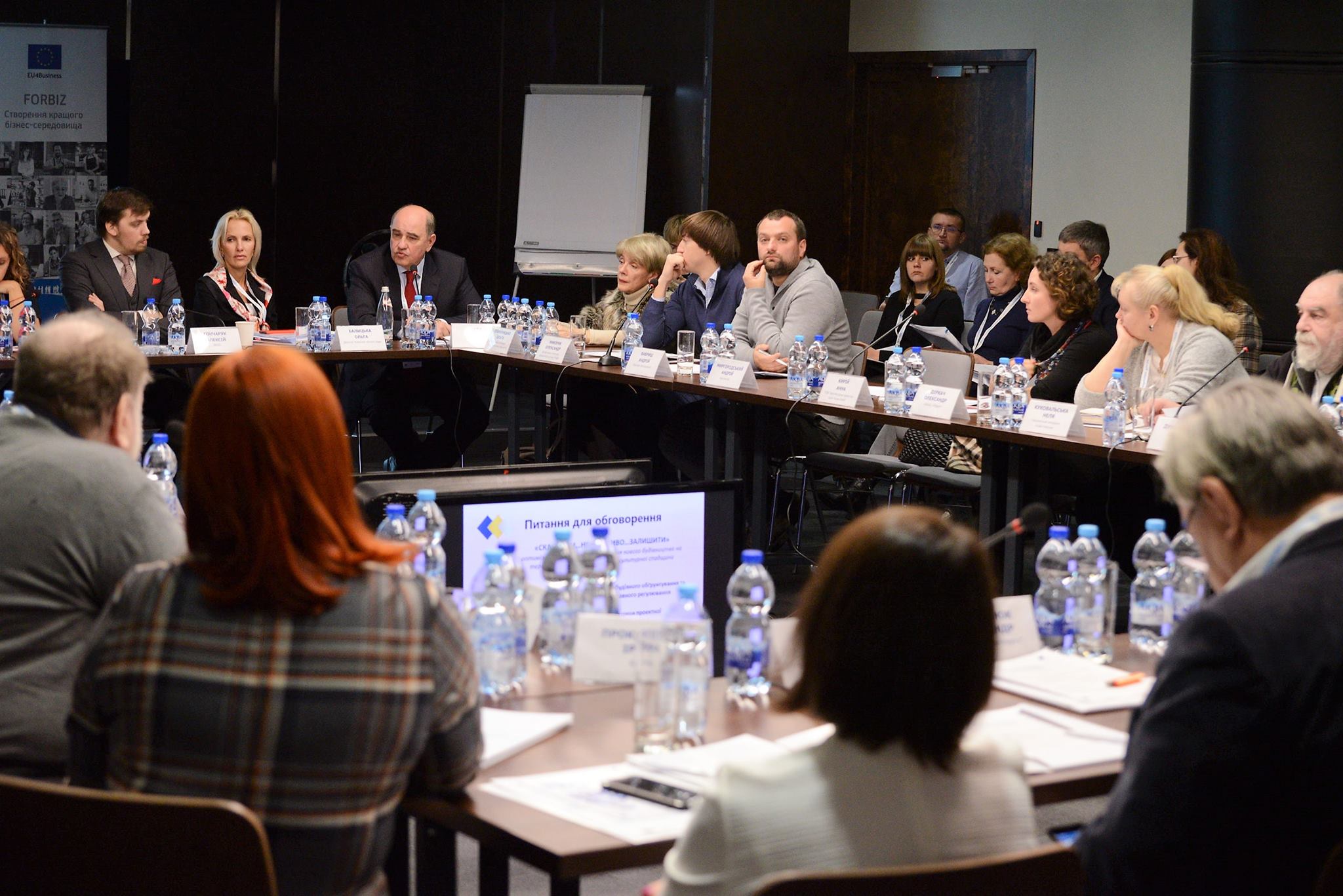
According to BRDO, the following urgent measures should be carried out:
– accelerating the development and adoption of amendments to the Law of Ukraine “On Protection of Cultural Heritage” to eliminate contradictions between provisions of the laws on cultural heritage and urban development activity.
– publishing a full database of immovable objects of cultural heritage.
– accelerating the development of key plans for all settlements of the country, in particular, in Kyiv.
– harmonizing the national legislation in accordance with the international law on cultural heritage protection, in particular the Convention concerning the Protection of the World Cultural and Natural Heritage.
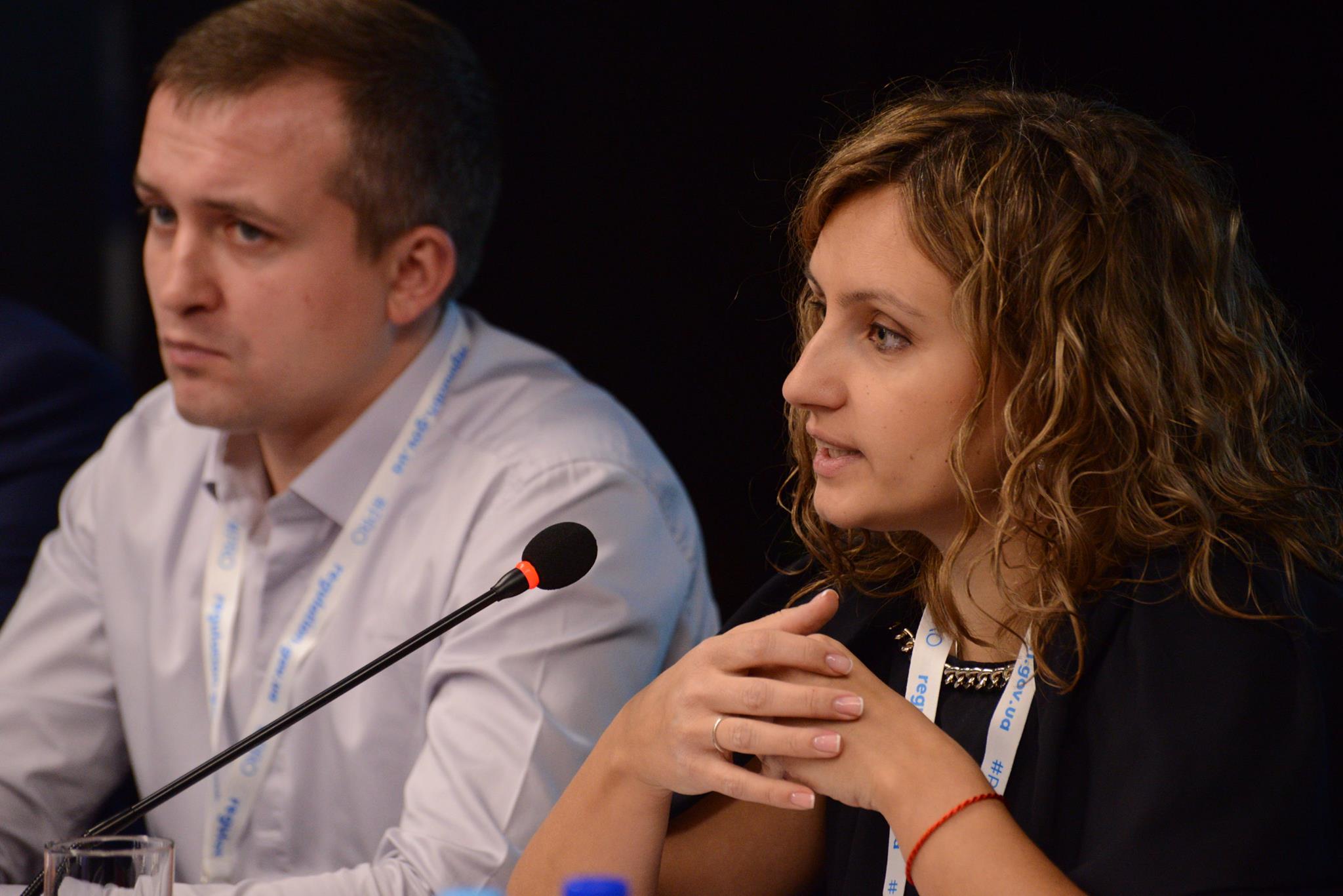
The event was also attended by Olha Plamenytska, Director of Ukrainian State Institute of Cultural Heritage, Olha Balytska, Deputy of the Kyiv City Council, representatives of the Ministry of Regional Policy, Construction, Housing and Utilities, the State Architectural and Construction Inspection, the National Commission of Ukraine for UNESCO and the municipal organization “Kyivhenplan” as well as business, expert circles and the public.
401 settlements in Ukraine are considered to be historic sites, but historic-architectural plans are approved only in 86 of them. That is, there are virtually no regulated development rules in almost 80% of settlements. It has significant risks for preserving the cultural heritage, constrains the development of historical sites and provokes numerous corruption abuses.
How to improve the control over the preservation of cultural heritage sites? How to promote the development of historic areas? How to build a system of quality assessment of the impact of construction facilities on cultural heritage and create transparent rules for business?
The government and business will try together to find answers and ways for solving problems during the round table “New construction in the territories of cultural heritage sites” on November 20, 2017.
The event will be attended by:
Tamara Mazur, Deputy Minister of Culture of Ukraine
Oleksiy Kudryavtsev, Head of the State Architectural and Construction Inspection of Ukraine
Oleksiy Honcharuk, Head of BRDO
Olena Shulyak, Construction Sector Head, BRDO
BRDO experts conducted a rolling review of the quality of market regulation, the results of which are presented in an analytical study – the Green Paper “New construction in the territories of cultural heritage sites” that will be discussed during the roundtable. Details – at www.regulation.gov.ua.
Join the dialogue! The results will be used as the basis to develop particular legislative changes in the market.
Venue: Kyiv, IQ Business center (13-15, Bolsunovskaya st.)
Time: 10:00 – 12:00, November 20, 2017
The event’s agenda is available here.
You can register here. Additional information is available by phone: 063 440 47 07.
Media accreditation – at [email protected] or by phone 099 256 59 56.
Source: delo.ua
The possibility of using any devices with Internet access as an alternative to cash registers has been discussed in Ukraine for two years. Everyone supports this idea in words: both the parliament, the government and businesses. But it still ends in talk. Delo.UA figured out how the things are.
After the next step of the Verkhovna Rada to increase fiscal control over sales of home appliances and electronics with warranty certificates, a number of entrepreneurs, experts and some deputies supported the simplification of the use of payment transaction registrars (PTRs).
We are talking about the adoption of the draft law No.4117 on liberalization of cash payments, which has been in the parliament for more than a year and a half. Representatives of business associations and subject matter experts have been arranging round tables and writing letters to the head of the parliament’s tax committee Nina Yuzhanina, who publicly promised to develop an alternative draft law and submit it to the parliament by July 1, 2017. It has been six months, but such a desirable liberalization of the PTR still got nowhere.
At the same time, the Prime Minister Volodymyr Groysman gave the instruction to the Minister of Economic Development to develop regulatory changes and simplify the system of cash registers.
They want to control, but can not systematize this control
According to expert estimates, in Ukraine, at least half of various cash transactions are carried out without PTRs. It is difficult to track the ready cash flows and that creates opportunities for the shadow economy and the underreporting of real cash assets turnovers by business.
It is obvious that the state is interested (or at least should be) in making the economy formal and monitoring cash turnovers. In addition, cash registers create additional barriers for selling contraband and counterfeit goods, and therefore the area of PTR’s application is gradually expanding.
But the difficulty is that actual business inspections regarding compliance with the cash payment procedure, and the use of PTR is the most corrupt aspect in the State Fiscal Service.
Even the Ministry of Finance, which is directly responsible for the work of tax bodies, admits this fact.
However, it is corrupt not least because of the complicated administration of cash registers. After all, even with the great desire of entrepreneurs to comply with a law, there are so many requirements that something can be violated unintentionally.
Everyone supports, but nothing happens
The first argument to liberalize PTRs is that it is necessary to reduce the pressure on business, make things easier to them and cut the cost of cash registers. Both parliamentarians, the government and experts are speaking about that.
But even with the general support, the process of refinement of the draft law No.4117 is actually blocked. It passed its first reading a year ago – in October 2016. And one would think that they can not delay its refinement until the second reading and the final adoption. Especially considering that absolutely all sellers of domestic appliances and electronics with warranty certificates (including simplified tax system taxpayers and online stores) have been obliged to sell goods only through a cash register and provide receipts for tax purposes since May 2017.
But since that time, the legislators have not made any progress. The last meeting of the working group took place seven months ago – in March 2017, but it also was unsuccessful. According to Nina Yuzhanina, initiators of the document could not succeed in reaching a single concept of digital PTRs. In addition, according to the tax committee member Tetyana Ostrikova, the issues on what data transmission technology to use, who should own intellectual and property rights for it and whether electronic or digital signatures should be used still remain unresolved.
The Ministry of Economic Development and the Ministry of Finance came to help the hesitant deputies.
Since May 2017, the working group consisting of “all persons who deal with cash registers” – business owners, public associations and state bodies, in particular, the National Bank, the State Service of Special Communications and Information Protection and SFS – have worked on a large package of amendments to regulatory and legislative acts. According to Ilya Neskhodovsky, the expert of “Reanimation Package of Reforms”, the amendments prepared by the working group are currently waiting to be approved by all interested stakeholders.
Less papers, more understandable procedure
According to the working group’s participants, they prepared two packages of changes for business. As Myroslav Laba, the BRDO’s analyst, says, the liberalization can be partly implemented in the near future without amending legislation. It is about the procedure for registration of PTRs in supervisory bodies.
“Today, an entrepreneur needs to collect a whole set of documents to register a cash register. Most of them comes as a surprise. These are the documents for a modem, an ownership certificate for a cash register, an agreement of a cash registers producer with the service center, documents on the premises where the PTR will be installed. Why all this?” Myroslav Laba wonders and adds that now you can find online ads on providing paid services for PTR registration in a tax agency. Such services cost 700-1,500 hryvnas.
Therefore, the working group proposes to make amendments to subordinate acts at the level of the Cabinet of Ministers and simplify the procedure as much as possible.
“It should be enough that an entrepreneur submits one application that he would like to use a cash register through his electronic payer’s cabinet,” Ilya Neskhodovsky says.
It may be possible to do so in 2018. “The task is set. From January 1, 2018, the e-taxpayer cabinet will be equipped with more functions. We hope that this feature will also be implemented,” the RPR exert says.
Another issue that can be solved quickly is removing the need to keep payment transaction records. Every day, entrepreneurs electronically submit information on all transactions to the SFS, but the laws oblige them also to duplicate all data in paper payment transaction records. “This is an obsolete provision, it has not been revised since the launch of transmitting information about cash register receipts to the Fiscal Service’s web center,” Myroslav Laba explains.
Soon: smartphones instead of PTRs and electronic cash receipts instead of paper ones
The second package of amendments to the draft law of the Ministry of Finance is more radical. It duplicates key proposals of the draft law No.4117 and broadens them proposing to include distributed point of sale systems into the existing list of PTR types.
POS systems should operate as follows: there is a terminal and a server networked via the Internet, and special software equipped with authentication tools perform fiscal functions. Payments documents, reporting receipts for tax purposes and control tapes are generated electronically and have a POS system’s digital signature.
A seller just need to send transactions information to the server and obtain the confirmation that the data was recorded.
This will allow entrepreneurs to use “handy” devices with Internet access such as smartphones, tablets or laptops instead of classic cash registers.
Ilya Neskhodovsky adds that for this purpose, it is necessary to amend not only the Resolution of the Cabinet of Ministers aimed specifically at classic devices, but also the legislation. This work will take significantly more time, so we can expect that the draft law will be prepared in the beginning-in mid-2018.
In addition, the working group promises to launch an “effective instrument to monitor entrepreneurs” – a so-called cashback mechanism. This means the online registry of checking receipts, where buyers can check the availability of their documents in the central SFS database.
“If there is no cash register receipt or this receipt is not for tax purposes, the entrepreneur’s activity will be inspected. And the buyer receives a bonus – a compensation in the amount of full product’s value. So we will make the customers interested in demanding cash register receipts and monitor the activity of sellers,” the RPR expert explains the innovations.
Supporters of the liberalization of cash registers believe that the further dialogue and the political will of the government authorities will be a way out of this situation. “In November, we together with our partners will hold the Second Economic Forum devoted to the de-shadowing of the economy,” the executive director of the Ukrainian Association of Direct Sales, member of the coalition “For unshadowing of economy” Nadiya Bedrychuk says. “Representatives of more than 50 business associations will require clear, effective and coordinated government’s actions at all stages of the launch of launching the de-shadowing process: creating a mechanism and a legislative framework to introduce third-generation PTRs (smartphones instead of cash registers), introducing the cashback mechanism to stimulate consumers to verify the authenticity of their receipts, eliminating excessive reporting and simplifying procedures. In addition, the de-shadowing requires implementing a real reform of the SFS, introducing non-corrupt customs and establishing a Service for Financial Investigations, which private business hopes for.”